She’s had her home broken into, her files stolen, and she’s feared for her life. She is also an expert in helping children recover from sexual abuse. Dr Reina Michaelson talks to The Record about some of the sinister challenges she has had to face and why some people want to stop her, very badly indeed...
the crusader
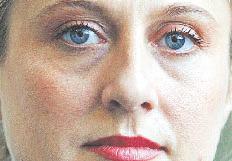
FOR THE BEST DEAL ON A NEW HONDA, ACCESSORIES,PARTS,FINANCEORFROM ACCESSORIES, PARTS, FINANCE OR FROM OURRANGEOFQUALITYUSEDVEHICLES. OUR RANGE OF QUALITY USED VEHICLES.



www.therecord.com.au
A NIGHT TO REMEMBER: Hundreds turn up at CYM ball Page 6
Theologians question the future of Limbo
Unbaptised babies in heaven makes more sense than Limbo, group says
■ By Cindy WoodenVATICAN CITY (CNS) - It makes more sense that babies who die without being baptised will go to heaven rather than limbo, says a group of papally-appointed theologians.
Members of the International Theological Commission said that while no one can be certain of the fate of unbaptised babies who die, Christians can and should trust that God will welcome those babies into heaven.
The commission, a Vatican advisory board, met from October 2-6 to continue work on a statement explaining why the concept of Continued on Page 2
THE PARISH. THE NATION. THE WORLD.
This is a pretty light typeface. So it begs the question: why are you even reading it at all? An advertisement in this one small box is cheap and noticeable. If you want to fill it, contact Terrence on 9227 7080.
Thursday
October , Perth, Western Australia ● $2 Western Australia’s Award-winning Catholic newspaper
LITTLE MISS SUNSHINE: Rough language, but a great movie Page 14
Eye on the Past Dead bishops resurrected
THE APOSTLES: This week, Bartholomew Page 16
Pope calls young to be ‘urban missionaries’
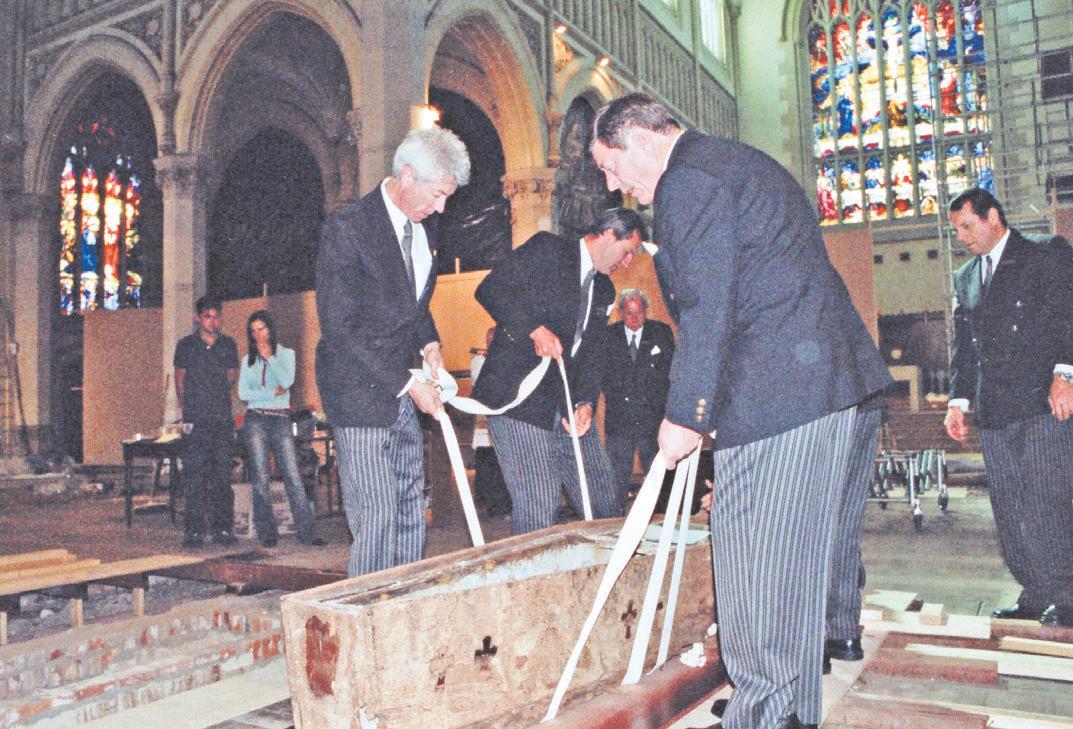
The move begins: The coffin containing the remains of Bishop Matthew Gibney is carefully transferred onto the base of a new casket by staff of Bowra and O’Dea on Tuesday October 10. Bishop Martin Griver’s coffin was also moved that day.
REPORT by Sylvia Defendi - Page 5
PHOTO: SYLVIA DEFENDI
Cardinal Pell refuses to endorse non-Catholic schools
but speaking to Australia’s top Catholic educators, he points out the Church has stopped educating the children of the poor
■ By Paul GrayCardinal George Pell has refused to endorse the choice made by some Catholic parents to educate their children in non-Catholic schools as a measure to best protect their faith.
Speaking at a national gathering of senior leaders in Catholic education, Cardinal Pell presented a worrying statistical picture of the state of faith among students in Catholic schools around Australia.
The Cardinal cited recent research showing that only 10 per cent of young Catholics today
SOMETHING DOESN’T ADD UP
Perth bioethicist Fr Joe Parksinson reflects on arguments used to justify cloning. If Australia has surplus embryos available for experimentation, what’s going on?
VISTA 2-3
believe the proposition that “only one religion is true”.
He also said he had not been surprised to read that 19 per cent of students in Catholic schools had reported being made fun of at school because of their religion.
Cardinal Pell said he had heard anecdotes about such experiences for years, and that this “parallels the small number of religiously committed parents who choose to send their children to non-Catholic schools claiming that their children’s religious practice was more likely to survive intact there”.
“Like the Holy Father citing a comment about
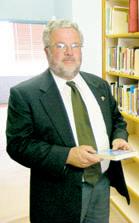
EDITORIAL
WORLD
OFFICIAL DIARY
Mohammed in his recent Regensburg address, I too cite this example without endorsement!”
The remark was a cheeky reference by the Cardinal to division within the Catholic community over the quality of the job being done by Catholic schools in the area of religious formation of the young.
His speech, delivered at the National Catholic Education Conference in Sydney, included commendations of the work being done by Catholic leaders and educators within the Catholic school system around Australia.
But Cardinal Pell also lamented the fact that
Continued on Page 12
School of diocesan evangelisation established
VATICAN CITY, OCT. 8, 2006 (Zenit.org) - Benedict XVI proposed to young people that they be the new missionaries in the streets and squares of cities.
The Pope uttered his exhortation when greeting 350 young “missionaries,” as he called them, who had just participated in the third “Jesus in the Centre” mission, carried out from September 28 to October 8 on the streets of Rome.
The young people were in St Peter’s Square, along with the crowds that gathered to pray the Angelus with the Pope. It marked the closing act of the young people’s missionary experience.
“Dear friends,” the Holy Father said, “I rejoice over your joyful commitment to proclaim the Gospel on the streets and squares, in schools and hospitals, as well as in young Romans’ places of recreation.”
Continued on page 10
Ex-Lutheran bishop: why I’m becoming a Catholic priest
■By
Ramon GonzalezCAMROSE, Canada (CCN/ Western Catholic Reporter) – Forty years after he was ordained a Lutheran minister, Joseph Jacobson can’t wait to become a Catholic priest. Jacobson, the former bishop of Continued on page 3
IT’S CONTEMPT FOR LIFE
Australia’s Parliament is considering the case for cloning, but the nation’s bishops spring to the defence of the human person at his or her youngest stage.
STATEMENT: Page 7
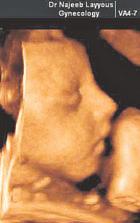

Theologians cast doubt on Limbo’s existence
Continued from page 1
McPartlan, a member of the commission and a professor at The Catholic University of America in Washington.
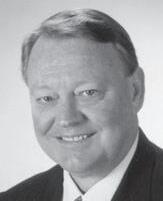
Fr McPartlan said: “We cannot say we know with certainty what will happen (to unbaptised babies) but we have good grounds to hope that God in his mercy and love looks after these children and brings them to salvation.”
He said the 30 commission members were in agreement on the main thesis of the document, but they had not put the finishing touches on it.
If they vote on the final version by mail, the document could be released by next year.
He said that while affirming people’s hope, the document takes pains to explain the Christian belief that baptism is necessary to guarantee salvation and urges parents to baptise their infants.
He said the document “in no way means to lessen the urgency with which the Church invites parents to have their children baptised”.
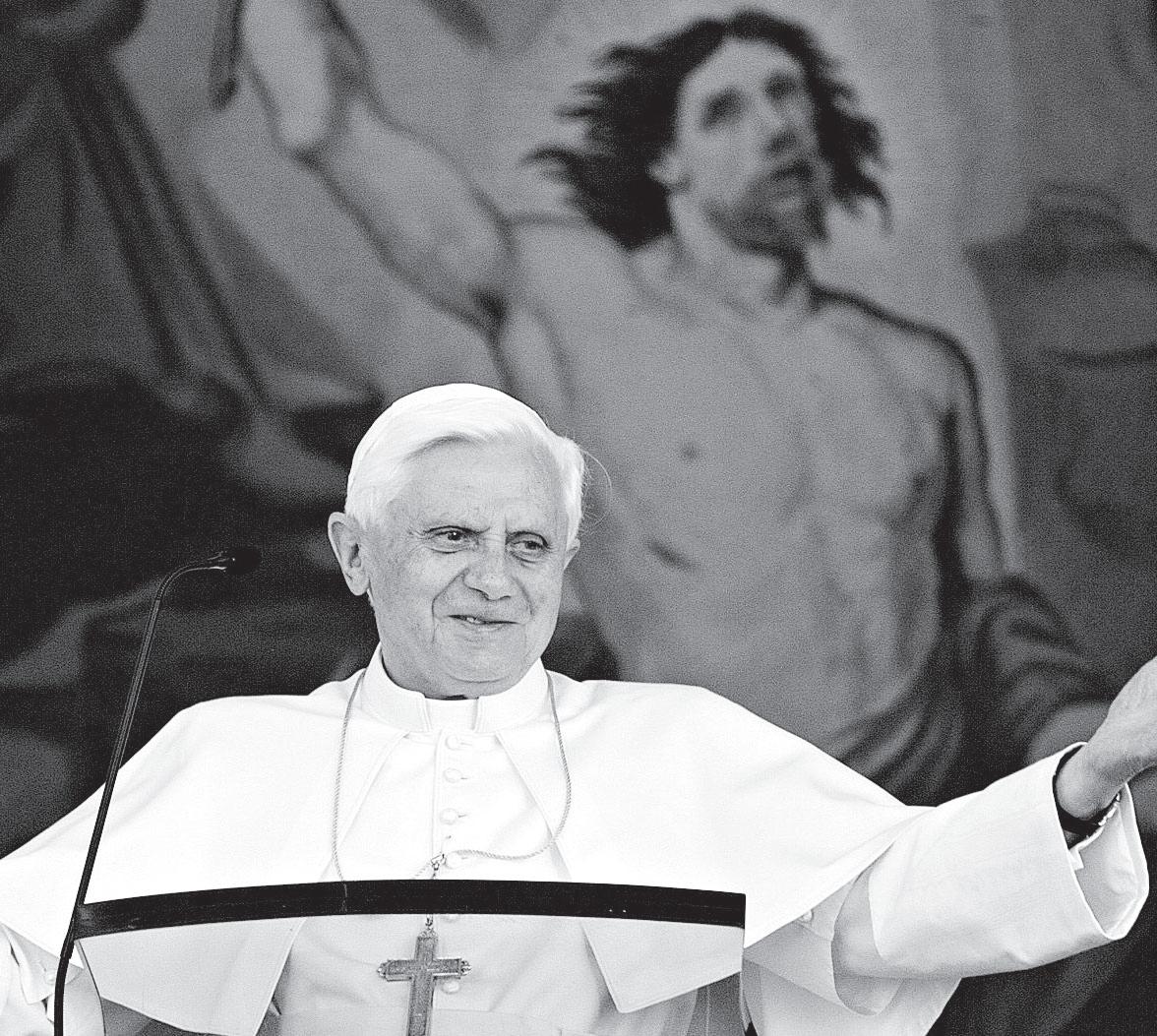
Contact:
Peter Rosengren
Letters to: cathrec@iinet.net.au
JOURNALISTS
Mark Reidy reidyrec@iinet.net.au
Sylvia Defendi (Parish/State) sdefendi@iinet.net.au
Paul Gray (National) cathrec@iinet.net.au
Bronwen
Linda
Kathi
PRODUCTION
Terence
Fax:
The
“What we are trying to do is to say, ‘What does the Church say when confronted with the situation of an infant who has died without being baptised?’ That and that alone is what prompted our document.
“The answer is not a simplistic, ‘Oh, don’t worry; everything is fine.
“Rather, that God’s endless mercy, his love poured out in Jesus Christ and his desire to save all people gives a solid basis for hoping those children will be saved despite not having been baptised.
The commission began formal studies of the question in 2004 when then-Cardinal Joseph Ratzinger, now Pope Benedict XVI, was president of the advisory body and prefect of the Congregation for the Doctrine of the Faith.
When Pope Benedict celebrated Mass on October 6 with the commission members his homily spoke about the role of theologians as listening to the word of God in order to help other’s hear the good news. But he did not mention the so-called limbo document.
Fr McPartlan said the commission began considering the question as priests and bishops around the world had asked then-Cardinal Ratzinger for “an updated Catholic statement in response to the distressing human situation” of parents mourning the loss of a baby before baptism.
The commission also hoped to respond to questions raised by those mourning the lives of babies lost through
abortion. As the Catholic Church teaches that human life begins at conception, the question applies to those babies as well, Fr McPartlan said.
He also said the theologians felt called to articulate a Catholic expression of hope in a world where hope is often lacking and lives are often laid to waste by war and violence.
Realising some people could misinterpret the statement as saying that baptism is unnecessary for infants because they are incapable of sinning, the document reaffirms Church teaching about the reality of original sin.
The Church believes that with the exception of the Blessed Virgin Mary and Jesus, every human being is born with original sin, which distances them from God.
As the Catechism of the Catholic Church explains: “Born with a fallen human nature and tainted by original sin, children also have need of the new birth in baptism to be freed from the power of darkness and brought into the realm of the freedom of the children of God, to which all men are called.”
But the Catechism, published in 1992, did not mention limbo.
In fact, regarding the fate of children who die without the grace of baptism, it said, the Church entrusts them to the mercy of God.
Presenting the commission’s work to Pope Benedict last year, Cardinal William J. Levada, prefect of the doctrinal congregation and president of the commission, said the statement was important as “the number of babies not baptised has increased considerably”.
He added that the Church knows that salvation “is only reachable in Christ through the Holy Spirit”.
He also told the Pope last year that he hoped the statement would be published soon.
Fr McPartlan said there were “no hiccups” in the drafting process, but conceded that the commission’s work takes time.
In the 1985 book-length interview, “The Ratzinger Report,” and in the 2000 book, “God and the World,” the future Pope Benedict said focusing on hope made more sense theologically then upholding the idea of limbo.
This is because Limbo was only believed to be where unbaptised babies would enjoy “natural happiness” for eternity, but would not be in heaven in the presence of God.
Limbo, he pointed out, was never a defined article of Catholic faith.
Rather, Cardinal Ratzinger said this was a hypothesis formed on the basis of the Church’s belief in the need for baptism.
Church leader speaks out for Hicks
■ By Paul GrayThe controversial case of terrorism suspect David Hicks has drawn a new public statement of concern from Australia’s most high profile Catholic leader, Cardinal George Pell.
This follows earlier statements of concern by the social justice agency of the Australian Catholic Bishops’ Conference over the treatment of Hicks at Guantanamo Bay in Cuba, where he has been held for more than four years without trial.
“I have long been disturbed by some aspects of David Hicks’ situation,” Cardinal Pell said this week.
“From all accounts we owe him no special favours at all, but he has a right
to be brought to trial more quickly than has happened and now as quickly as possible.”
Sydney’s Anglican leader, Archbishop Peter Jensen, made a public statement which coincided with Cardinal Pell’s.
Dr Jensen described the holding of a person for so many years without trial as “unconscionable.”
The long-term detention of Mr Hicks, an Australian citizen who converted to radical Islam and supported the oppressive Taliban government in Afghanistan, has provoked intense lobbying on his behalf from the Australian legal community.
The case has become intensely political, with insiders in Washington and Canberra viewing it as a decisive case in which the legitimacy of the Bush
Administration’s approach to the war against terrorism is being tested. David Hicks’ father, Terry Hicks, has claimed that his son was “demonised” through the media in the weeks following his detention in Afghanistan in late 2001.
Cardinal Pell’s statement this week is in line with a statement made in August by Bishop Christopher Saunders, head of the Australian Catholic Social Justice Council.
“If Mr Hicks has a case to answer he should be tried without further delay by a competent and independent tribunal with all of the protections of the rule of law that Australian citizens would expect, compliant with the Geneva Conventions,” Bishop Saunders said.
“Otherwise his continued indefinite detention can no longer be justified.”
Lutheran bishop tells why he’s becoming a priest
Continued from Page 1
the Alberta Synod of the Evangelical Lutheran Church in Canada, was ordained a deacon for the GrouardMcLennan Archdiocese at St Albert Church on September 21.
“I see myself as a pastor that’s very close to the people and a faithful servant of the Lord that always functions within the guidelines. I’m not going to challenge authority,” he said.
Jacobson ordained many women as ministers when he was a Lutheran bishop, but he said that doesn’t mean he endorses it for the Catholic Church “because a priest is not a minister. There is a difference”.
The 66-year-old father of two and grandfather of five expects to be ordained a priest before Christmas and to be appointed chancellor of the Grouard-McLennan Archdiocese and interim pastor of St John Baptist Cathedral in McLennan immediately after his ordination.
He is relieved to “finally have
some direction” after 12 years of retirement and wondering where God was leading him.
Jacobson and his wife, Carolyne, who live on a farm near Bashaw, Canada, joined the Rite of Christian Initiation of Adults at Immaculate Heart of Mary Parish in Bashaw in 1999 and became Catholics at the Easter Vigil of 2000. Their two adult children are also in the process of joining the Church.
“The key moment (of my conversion) was in Ireland in 1997 when I realised that the teaching authority of the Church is something Jesus gave to Peter and the bishops and no other church really can duplicate what Jesus gave,” he said.
“You can’t substitute for it. You can’t find something better. You can’t do without it. The Church needs a rock and the rock is the one Jesus gave us and it’s the Holy Father with the bishops and without that there is no rock. Any church that tries to live without that is subject to the shifting sands. Most church-
es function by a majority vote of members and that means they are very vulnerable to the popular culture. In fact they are exposed to all kinds of extremes with the result that there are no safeguards that we are going to stay on the rock, stay on the foundation of Christ.”
“I’ve been trying to reinvent something Jesus made right the first time.”
That realisation hit him while sitting on a rock in Ireland looking at the Atlantic Ocean.
“I said, ‘Oh, good Lord. I have been trying to reinvent something Jesus made right the first time,’’ he said, describing the insight as a “moment of clarity” that didn’t just come out of the blue.
“I had been wrestling with the
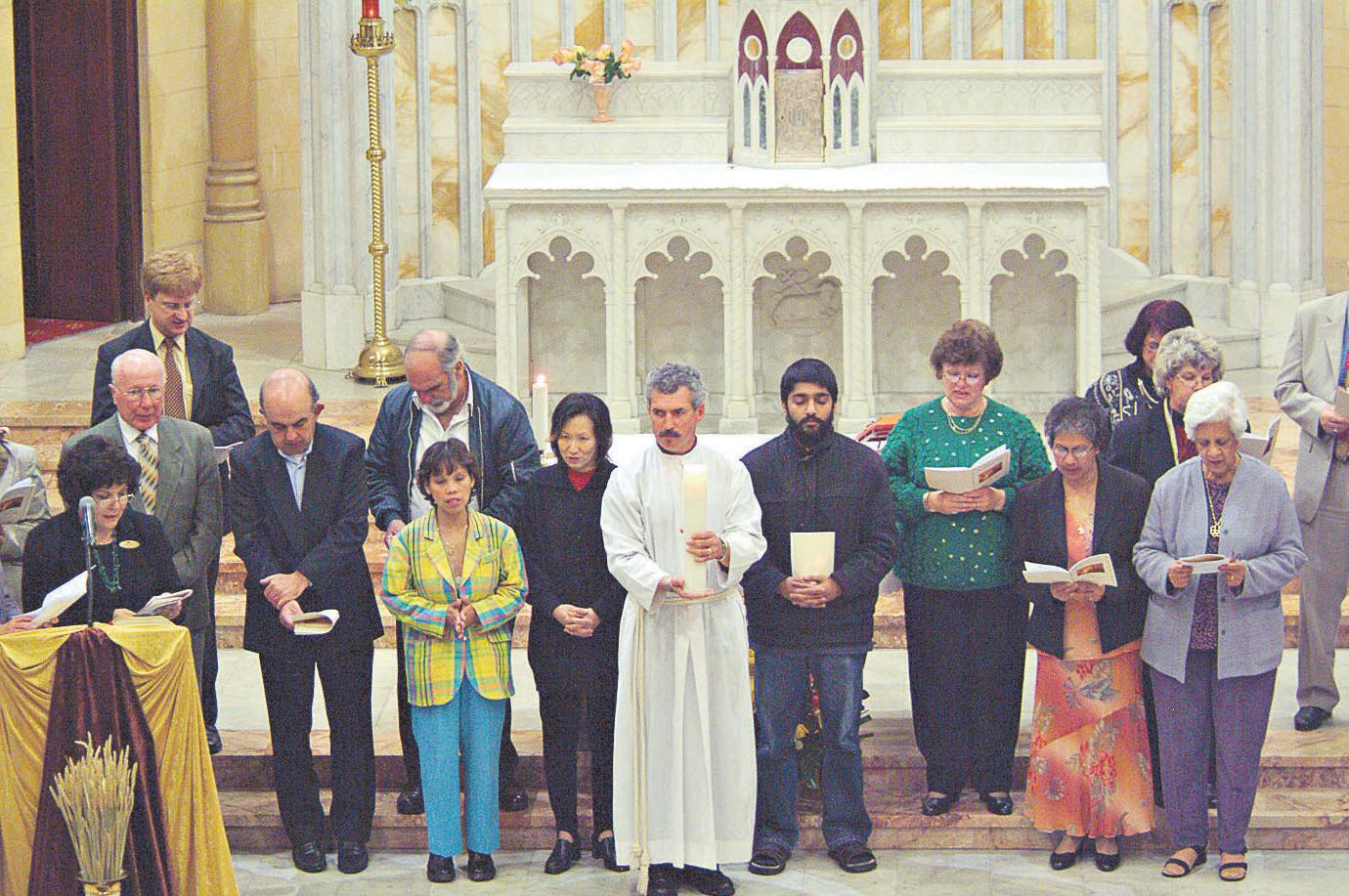
Catechists receive a commission
The ministry of Catechism in the Perth Archdiocese has been bolstered with the commissioning of 27 new candidates at a Thanksgiving and Commissioning Eucharist celebrated by Bishop Don Sproxton.
Catechists who have trained or continued their formation, either with the Catechist Service or Personal Advocacy Service, were joined by friends, relatives and a number of parish priests in acknowledgement of their commitment to the ministry.
In his homily, Bishop Sproxton encouraged their dedication to the
religious education and catechesis of adults with disabilities and children who do not attend Catholic schools.
“As teachers, we need to listen in order that we can help our young people discern God in the midst of their lives,” he said.
“We pray for assistance as we help our young to come to a deeper love and knowledge of God and we ask that we may be instruments in the hands of God to share our faith through personal witness.”
- Phil Bayne, CEO MediaGermans to go forth and multiply
The German Parliament has passed a law allowing parents to take paid leave to look after newborn children.
To encourage people to have more kids, parents of children born after January 1, 2007 who have stopped work to look after the child will receive 67 per cent of their net salary up to a ceiling
of $3,045 a month for a year. That could be extended to 14 months if the father undertakes the childcare for at least two months. If both parents want to be off work at the same time, they can each receive the payment for seven months.
Parents can also benefit if they work less than 30 hours a month.
issue for a long time. It crystalised after a long period of prayer and reflection.”
It helped that Jacobson served as co-chairman of the LutheranCatholic theological dialogue for Canada for almost eight years together with Vancouver Archbishop Adam Exner.
His wife was part of the journey, but he said it took her a long time to understand what the real breakthrough was for him – about a year.
In 1998, almost five years after he took “early retirement” as Lutheran bishop, Archbishop Joseph MacNeil invited Jacobson to consider becoming a priest. “I had not actually thought about that. He asked me if I would serve if the opportunity was there and I said I would if the Church decided that was the right thing to do.”
Jacobson was born in Milwaukee, Wisconsin, in 1940, the son of a Lutheran minister. He earned his Bachelor of Arts from St Olaf
College and his Bachelor of Divinity from the University of Strasbourg, France, before graduating from Northwestern Lutheran Theological Seminary in Minneapolis in 1965.
His fluency in languages led him to serve in western Canada, where there were many first-generation immigrants and a need for a minister who could preach in German, French and Spanish.
He said many Lutherans understand their entire progress as a gradual homecoming. “Once the causes of the Reformation were reckoned with, many Lutherans believed that union with Rome would be the way the church would go. But it became apparent about 1990 to many of us that this was not about to happen within any Protestant church at this point in history.
“So whereas I was always on a homecoming journey back into the Catholic Church for my entire ministry, all of a sudden I realised that the church that I was part of was not.”
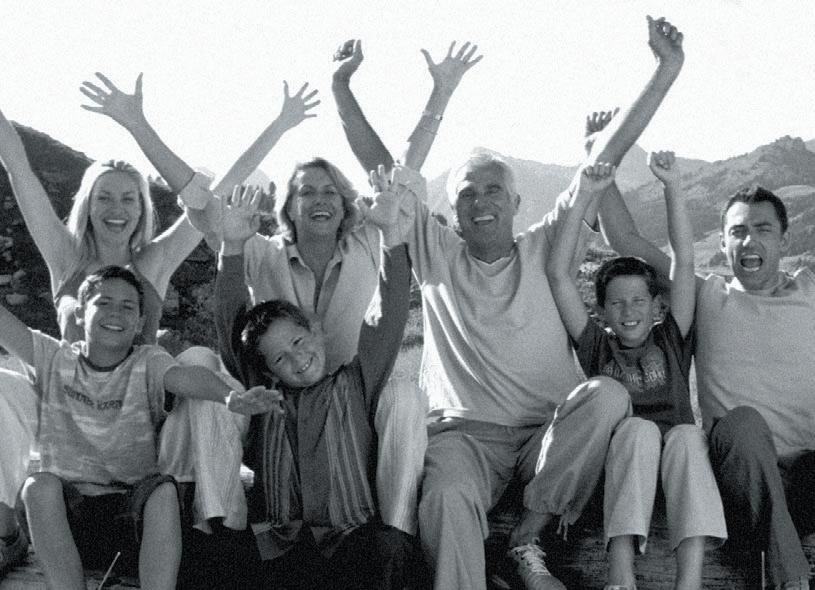
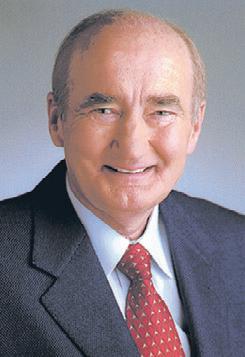
I’m John Hughes, WA’s most trusted car dealer
Do I guarantee that when people come to do business with me, they will be treated with courtesy, sincerity, professionalism and ef ciency?
I say “I want your business and I m prepared to pay for it” and “I stand behind every car I sell”. Is that really true?
Is it true that I have over 40 technicians who are dedicated to getting my used cars in rst class condition before sale?
Is it true that every year for the last 17 consecutive years
I ve been Australia s top selling Hyundai dealer?
Is it true that if somebody buys a used car from me, I will pay for a pre-purchase RAC or similar inspection?
I have a warehouse selling cars under $10,000. Is it true that I offer a full money back guarantee within one week?
Don’t freak out, we’re here to help, say campaigners
■ By Sylvia DefendiMothers were shopping at their local Midland Gate shopping centre, teens were driving into the Midland licensing centre and friends caught up at various cafes, yet both young and old stared as one of Perth’s pro-life groups marched through the streets with Franciscan Friars and Sisters in full habit on Friday October 6.
Most people seemed surprised to hear the 20-person group recite the Rosary as they made their way to the Marie Stopes International Abortion Clinic in Midland.
Yet for those marching this was one of many weekly visits to abortion clinics across the Perth metropolitan area in an effort to halt the devastating effects of abortion.
A worldwide initiative of American Mgr. Philip Reilly, the Helpers of God’s Precious Infants began in Perth on May 24, 1997, under the guidance of Archbishop Barry Hickey who has joined in the prayerful ‘Rally for life’ at least four times.
The group visits the major abortion clinics in Midland, Rivervale and Balcatta on a weekly basis, peacefully praying the Rosary while offering physical, educational, emotional and spiritual assistance to traumatised women both before and after abortions.
On the first Friday and Saturday
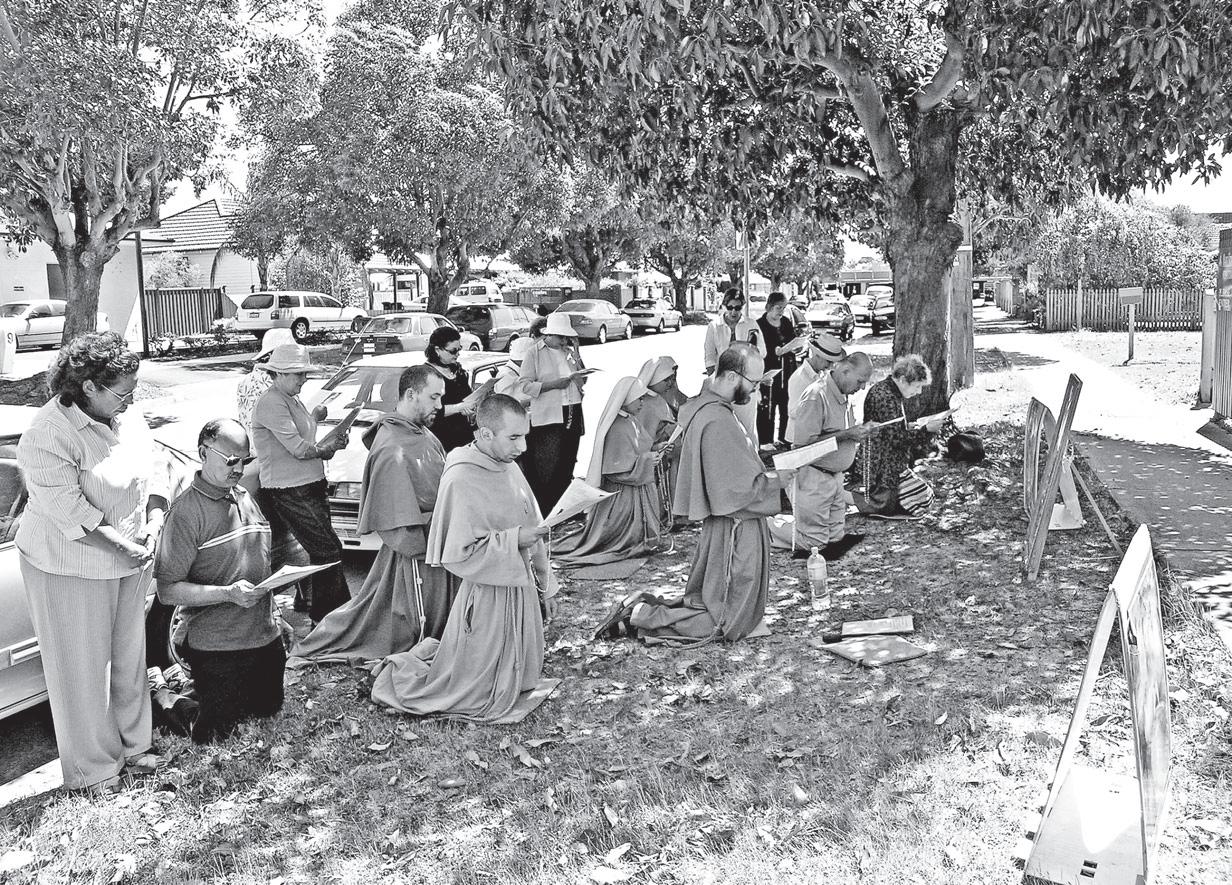
of each month the group gathers for Holy Mass and then processes through the streets before settling at a clinic.
“Hundreds and hundreds of women have walked away from this fatal decision over the last 10 years, because of the prayers and support
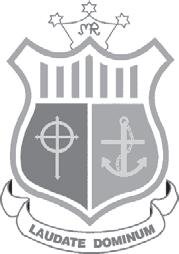
MERCEDES COLLEGE
Victoria Square, PERTH WA 6000
of this apostolate,” said one coordinator, Helen Sawyer, who has been part of the group since its inception in Perth.
“There are times when girls have been very frustrated and angry, but that is a good sign – they are obviously very upset and know in their
MERCEDES COLLEGE, a Catholic secondary school for girls, founded in 1846 by the Sisters of Mercy, is having an OPEN DAY on 22nd October from 11am - 1.30pm.
Throughout this time there will be conducted tours, displays, drama and music performances and an art exhibition. Last tour commences at 1pm. All are welcome. For further information please contact Alison Sim on 9323 1323 or asim@mercedes. wa.edu.au
Celebrating 160 Years of Education at Victoria Square
PRINCIPALSHIPS
OUR LADY STAR OF THE SEA CATHOLIC SCHOOL ESPERANCE
Our
JOHN PUJAJANGKA-PIYIRN SCHOOL,MULAN
John
hearts that what they are doing is wrong. What is more disturbing is when women enter with a very strong mind. These, as Mgr. Reilly once said, have already spiritually aborted.”
Aside from the power of prayerful intercession, an integral element
of each rally is the presence of a ‘counselor’ who approaches women entering clinics to pass on brochures or other forms of information, often asking them to reconsider the decision to abort.
“Just this morning a young girl of about 16 turned up at the clinic. I approached her for a chat, and while reluctant at first, she let me know that she was also a Christian and had asked God for a sign. She found that sign in our presence and decided to keep the baby,” said one counselor, Francette Galibardy.
Although a much-needed and called-for apostolate, the Helpers of God’s Precious Infants are struggling to maintain a constant presence.
“Sometimes people can be quite frightened of this apostolate, but you need to have courage and faith – no one has ever come to any harm whatsoever,” Mrs Sawyer said.
During his first Friday homily, Franciscan Friar, Fr Andrea commented that more children have been killed through abortion than people in wars throughout the 20th century. His coments indicated just how many children and families have been severely harmed through this process.
“Often women just want someone to say ‘don’t do it,’” concluded Mrs Sawyer.
To participate or for more information contact
Helen Sawyer on: 9402 0349 or Francette Galibardy on 9279 3934.
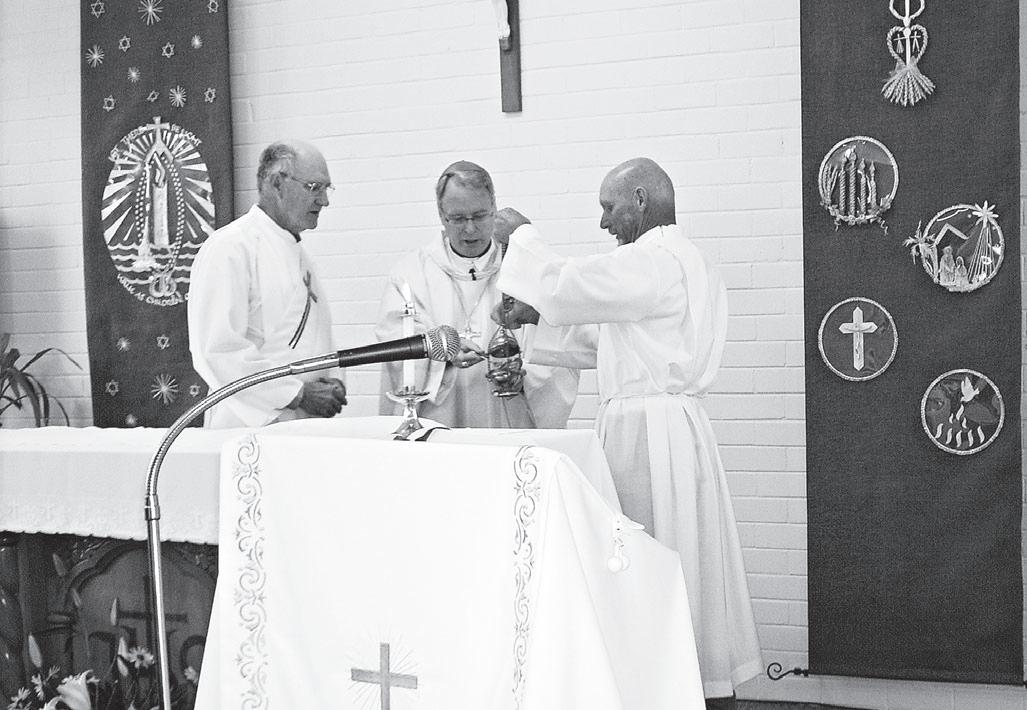
In remembrance: Bishop Donald Sproxton celebrates Mass with the Koorda Catholic community.
Koorda celebrates 50 years
■ By Sylvia DefendiThe Koorda Catholic community reminisced as 50 years worth of memories were celebrated during Our Lady of the Assumption’s Golden Jubilee Mass on September 17.
Over 130 parishioners attended the celebration, some of whom had to be seated outside due to lack of space.
Auxiliary Bishop Donald Sproxton celebrated the Mass with concelebrants, Abbot Placid Spearritt from New Norcia; parish priest Fr Chien Quyet Nguyen, past parish priests Fr Nino Vinciguerra, Fr Joshua Marini, Fr Francis Nguyen and Fr Brian Limbourn from St Charles Seminary, Guildford.
During his homily, Bishop Sproxton invited past and present parishioners to share their memories of the Koorda Church.
Several members of the congregation recalled the days of parish priest Fr Reg Hynes, whose work enabled the Church to be built.
After Mass the crowd adjourned to the rec-
reation ground where they were welcomed by the president of the Koorda Catholic Church Committee, Graham Fuchsbichler.
Lunch prepared by the parishioners was enjoyed by all, while a photo display covering the last 50 years brought back many memories and a historical display of vestments used in the past created a lot of interest.
Several people from the early parish travelled to join in the celebrations, including May McPartland, Mary Jennings from Bunbury, Val Mighall, Sue Cameron and Mollie Pauley.
Representatives from Koorda’s Anglican and Uniting Churches, Christian Fellowship and the CWA, which generously provided the venue for Mass in the early days, joined in with the celebrations.
“A particularly special moment was the presentation of a Papal Blessing from Pope Benedict XVI to the Koorda Catholic community,” said parishioner Kath Gosper.
The framed blessing, presented by Bishop Sproxton was received on behalf of the parishioners by Graham Fuchsbichler and will be displayed in the Church.
Deceased bishops exit St Mary’s Cathedral
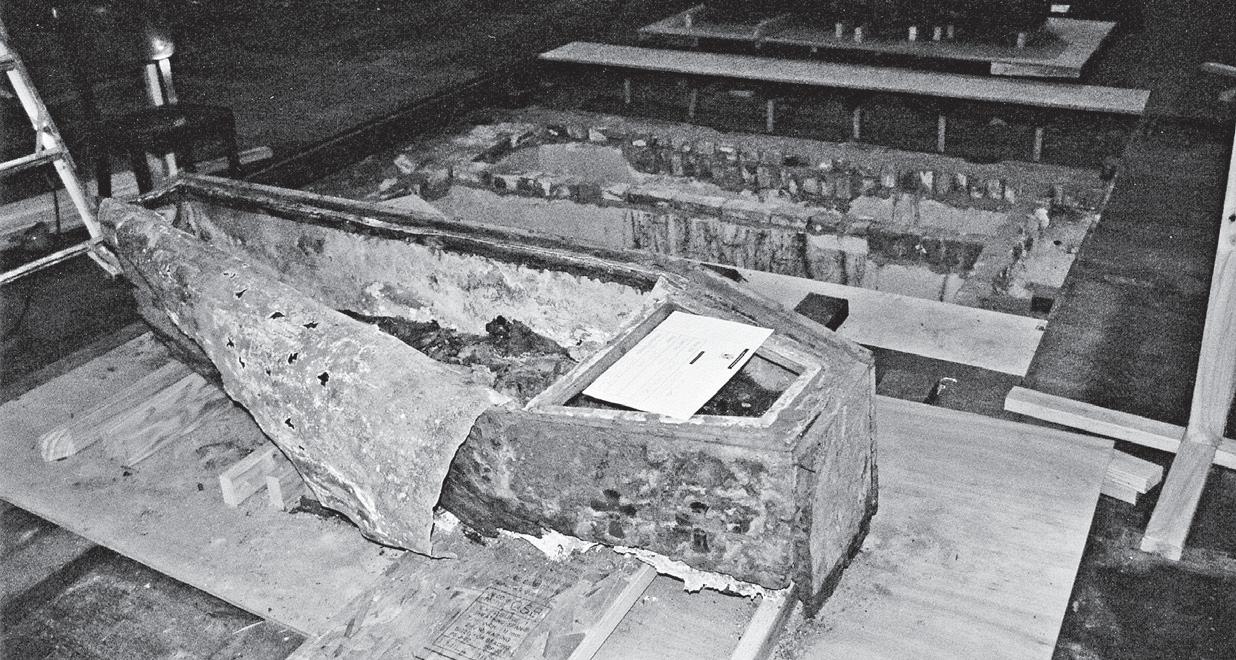
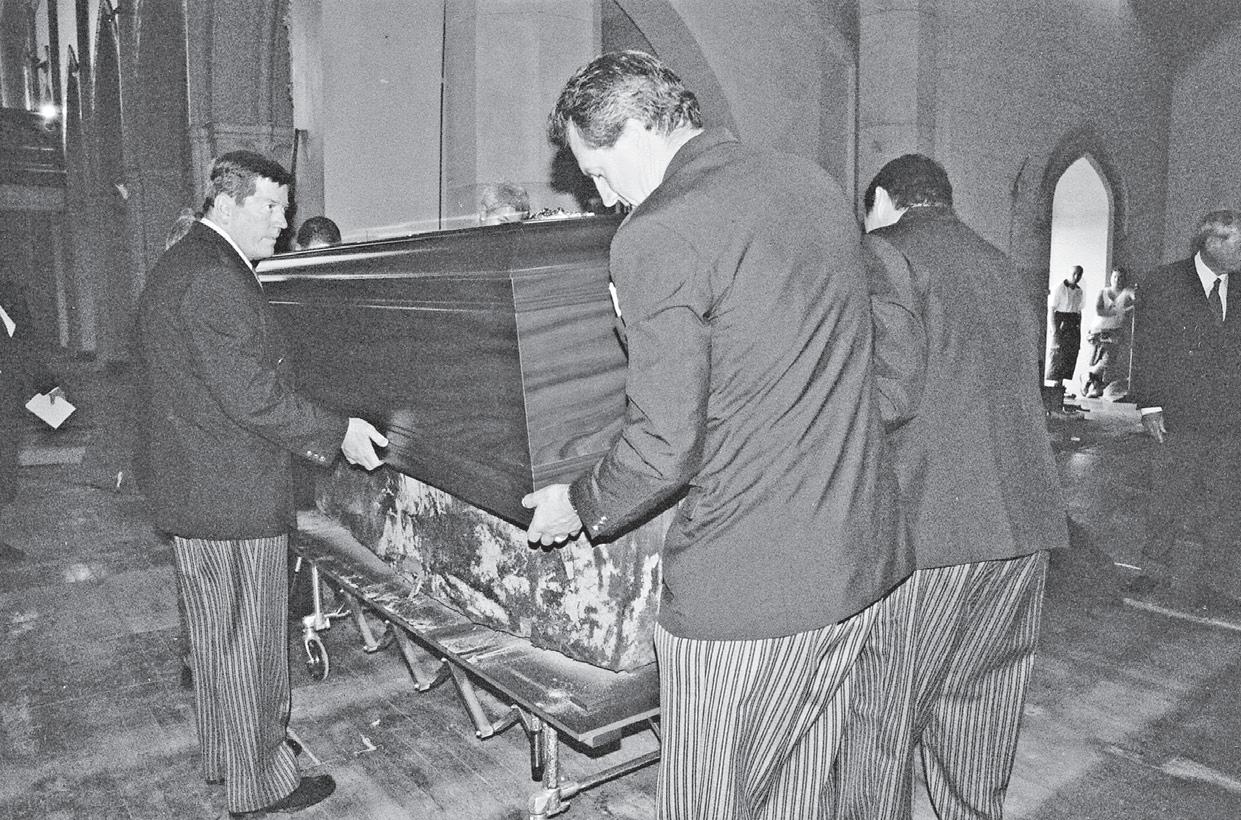
Counter-culture families needed: Pope
The world needs families that go against the current of cultural fashions inspired by hedonism and relativism, says Benedict XVI.
Before reciting the midday Angelus from the window of his study, with thousands of people gathered in St Peter’s Square, the Pope also appealed to leaders of public life to support the family.
The topic chosen by the Holy Father for his address was inspired by the Gospel passage of the day’s liturgy, in which Jesus gives his vision on indissoluble marriage: “What God has joined together, no
human being must separate.”
“May Christian spouses, aware of the grace received, build a family open to life and capable of facing together the numerous and complicated challenges of our time,” exhorted Benedict XVI.
“Their testimony is particularly necessary today.
“Families are needed that do not let themselves be drawn by modern cultural currents inspired by hedonism and relativism, and that are willing to realise their mission in the Church and in society with generous dedication.”
WANTED: VOLUNTEER WORKERS
KIMBERLEY CATHOLIC VOLUNTEER SERVICE
The Diocese of Broome, Western Australia urgently requires volunteers – particularly handymen to carry out building maintenance - to serve at the remote Mission at Kalumburu.. Couples are also urged to apply. Other duties include any of the following – cooking, working in the Mission shop, building and general grounds maintenance, vehicle maintenance and housekeeping.
Placements are preferred for a period of twelve months but a reduced time would be considered.
For further details and an application form please contact:
Kerry or Merrilyn Purcell
Ph: (08) 9192 1060 Fax (08) 9192 2136
email: info@broomediocese.org
PO Box 76, Broome WA 6725
Amid the applause from those in St Peter’s Square, he quoted Pope John Paul II who described Christian spouses as “authentic ‘missionaries’ of love and life.”
At the same time, Benedict XVI invoked divine assistance for families, “especially those going through difficulties.”
Speaking in French, after praying the Angelus, the Holy Father appealed to those responsible for public life, to “support, for the good of all, the conjugal and family institution, fundamental for society.”
■ By Sylvia DefendiThe remains of two influential Catholic Bishops, who served the Perth Archdiocese, were handed over to funeral company Bowra & O’Dea on Tuesday October 10, a week after the coffins were exhumed from under St Mary’s Cathedral floorboards.
Four floorboards of the central aisle, each inscribed with a cross, indicated the existence of a crypt, the precise location of which has been debated for many years.
Archeologist Fr Robert Cross discovered the crypt during a routine survey of the floorboards.
It was later found to hold the remains of Bishop Martin Griver, who died in 1886 and Bishop Matthew Gibney, who died in 1925.
Only two feet of earth was removed before excavators hit the coffins, one of which was almost completely white-anted, including the zinc inner casket.
While difficult to transport into the new coffins, staff from
the funeral company were able to maintain the fragile coffins without further disintegration.
Staff members from Bowra and O’Dea commented that this was not a common experience and that it was difficult to predict the fate of the deteriorating coffins when transporting them.
Archeologists Shane Bourke, Fr Cross and a team of volunteers from the University of Western Australia watched on as Monsignor Thomas McDonald blessed the new coffins in a short farewell ceremony.
The remains will be managed by Bowra and O’Dea and then transported to a Mausoleum in Karrakatta Cemetery where Archbishops Goody, Clune, Prendiville and Foley have been laid to rest.
The Archdiocese of Perth is planning to then transport all six bishops back into the newly completed Cathedral where a crypt will be built with 14 burial chambers.
“It was Archbishop Goody’s desire to be buried in St Mary’s Cathedral and I am happy that it looks as though he will soon get his wish,” said Mgr McDonald.

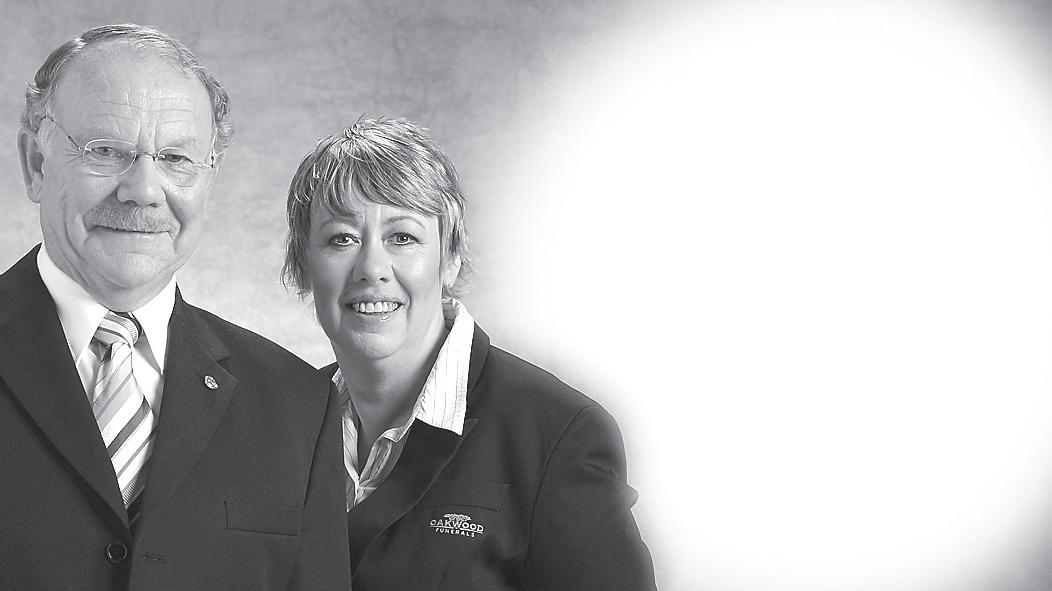
Hundreds turn out for CYM Youth Day ball
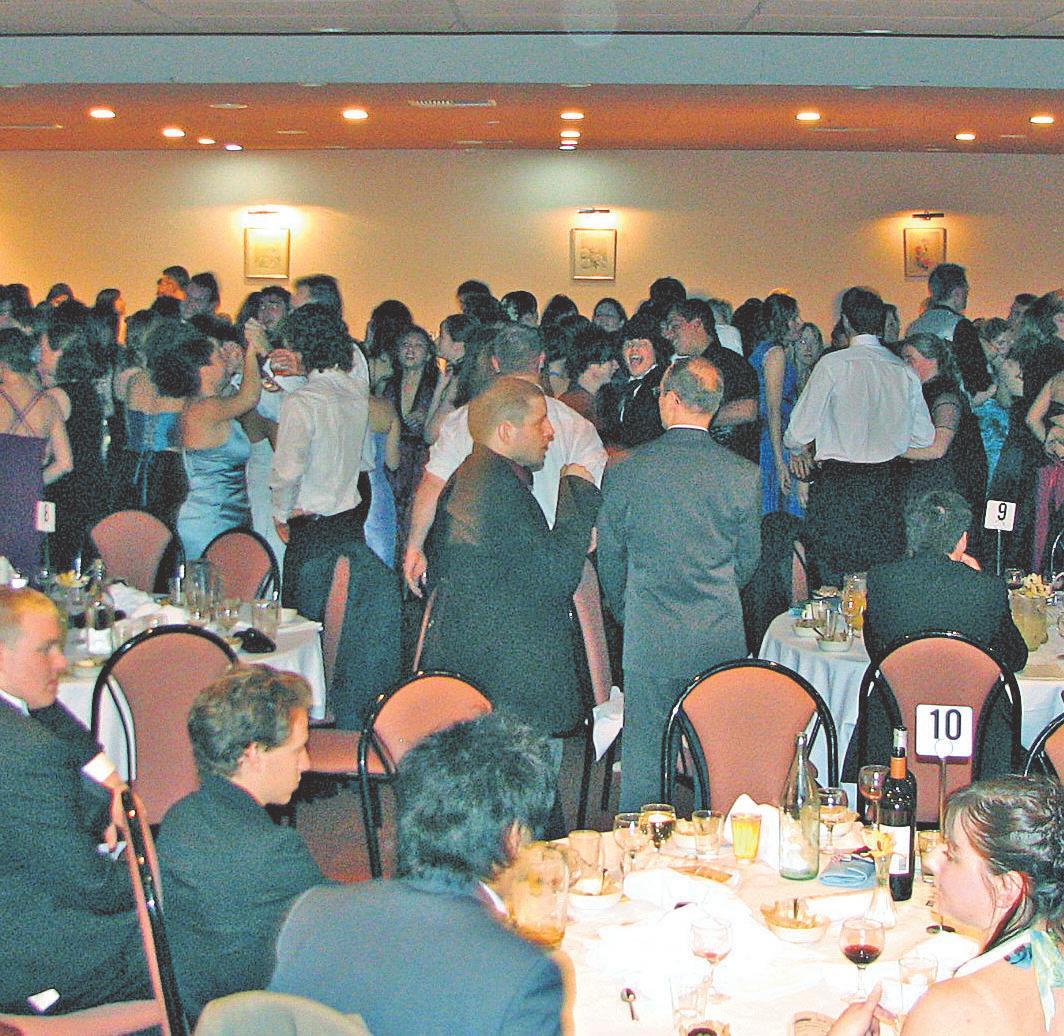
Memory sticks allow pupils to travel light
Pupils starting secondary school in the Alpes-Maritime departement of France have been issued with memory sticks so as to reduce the load of textbooks they carry to and from school. The 512mb sticks will be preloaded with selected texts and used to transport classwork and exercises. Every September there is an outcry from parents as children stagger back to school under the load of new books. Secondary pupils typically carry about 10kg or 22lb in their cartables (satchels). Primary children carry 4-6kg. This is far above the official maximum of 10 per cent of the child’s weight. About 80 per cent of pupils in the region have computers at home and all have access to them at school. Some better-off families shun the home computer “for ideological reasons”, says an education official. Christiane Alain of the Federation of Parent-Teacher Councils says the memory stick is “an interesting idea’, but “I get a bit annoyed when they always make the computer a solution. Books have their virtues and they should be kept.” Schools have also introduced electronic blackboards so that everything the teacher draws or writes can be stored on the memory stick. TIMES ONLINE
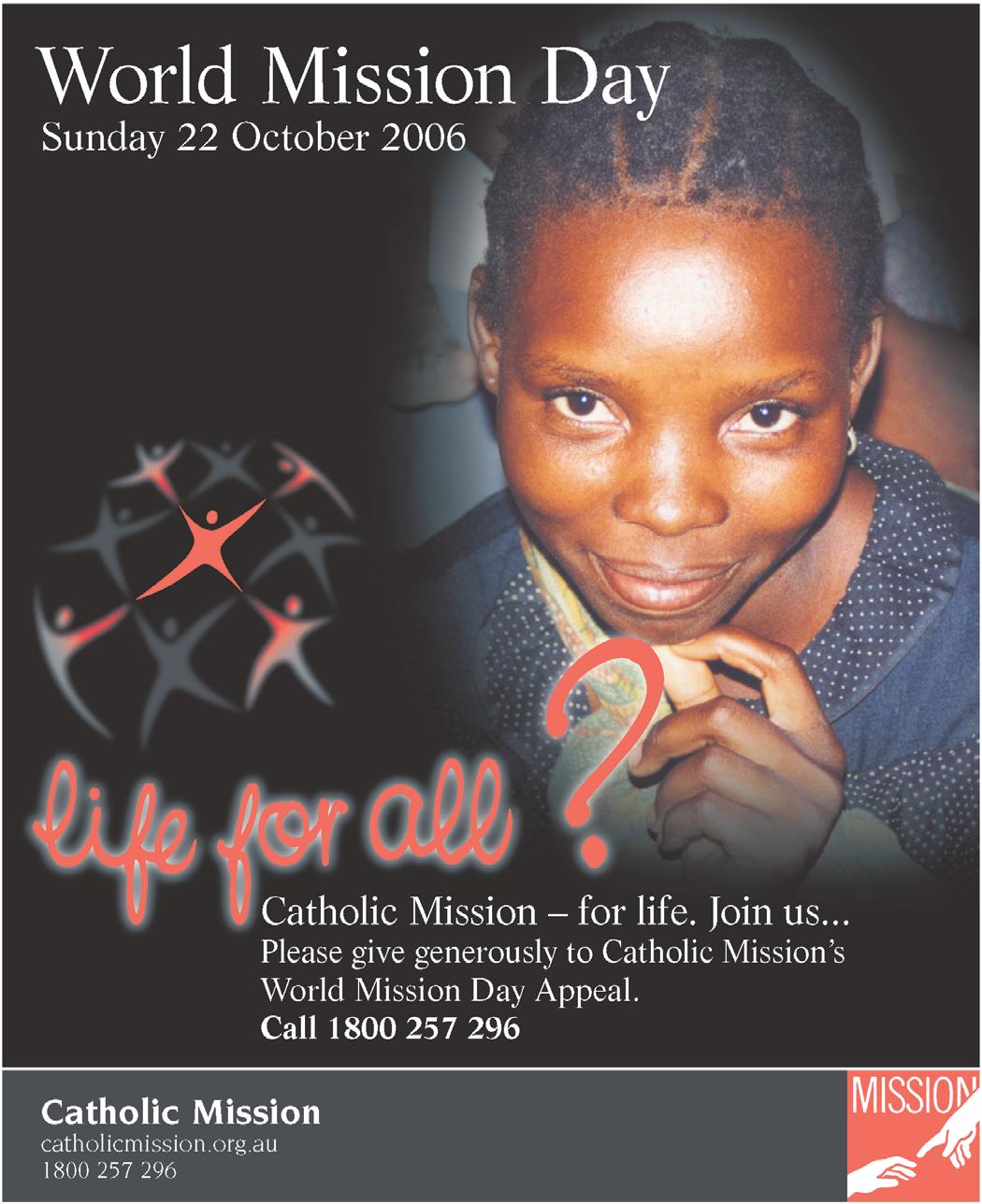
More than 300 people, most of them young, gathered at Rosetti’s Restaurant on 23 September for the inaugural Catholic Youth Ministry ball.
Young and old from parishes and groups throughout Perth came together to enjoy a night of music, entertainment, prizes and good company to raise funds for the local preparation for World Youth Day 2008.
Attendees enjoyed a superb three course meal and participated enthusiastically in the raffle and spot prize hilarity.
Successful participants received prizes donated by Gatto Christian Shop, Maurice Meade, Brumbys Woodlands, the Atrium Hotel, Mandurah, and Perth artist, Formerly Known As
Master of Ceremonies, Mr Daryl Pranata, provided humorous banter throughout the night and opened the evening with a short viewing of the Activ8 DVD produced by Sydney’s World Youth Day organising team.
The DVD, which has been sent to all Catholic parishes and schools, conveyed the scale and significance of World Youth Day as well as the support given to the event by His Eminence, Cardinal George Pell, and Prime Minister, John Howard.
After four weeks of ballroom dancing lessons organised by CYM, three couples took to the dance floor to demonstrate their skills before spontaneous dancing erupted when local vocalist Ms Nadia Sandrini began one of three songs she would perform that night.
Swing and jazz classics gave way to party
favourites following the end of dinner when the young and young-at-heart took to the dance floor; a situation which continued until evening’s end.
The World Youth Day Ball was the culmination of the efforts of a committee made up of young people from throughout the Archdiocese of Perth: Ms Clare Moonie, Ms Melissa Haydon, Ms Stephanie Samantha, Mr Christian Irdi, Ms Katherine Radosevich and committee chair, Mr Daryl Pranata.
“This is a sign of things to come as the Catholic Church in Perth gets fired-up about World Youth Day, Sydney 2008”, said CYM Coordinator, Mr Robert Hiini.
“We want to show young people that celebrating being young and being a disciple of Jesus Christ are not mutually exclusive. I think people feel that tonight”.
Asked about the role of CYM in the local planning of World Youth Day, Mr Hiini spoke of the essential role of unity and cooperation.
“We look forward to working with parishes; helping them expand the opportunities available to young people to live out their faith locally in the lead up to World Youth Day and beyond”.
The World Youth Day Ball 2006 was made possible by the generous support of law firm, Irdi Legal, graphic design company, Monk Media, Rossetti Restaurant and The Record Catholic newspaper.
Record editor Peter Rosengren said he hoped that all had danced at least once on the night.
Claremont commemorates year of Rosary with... roses
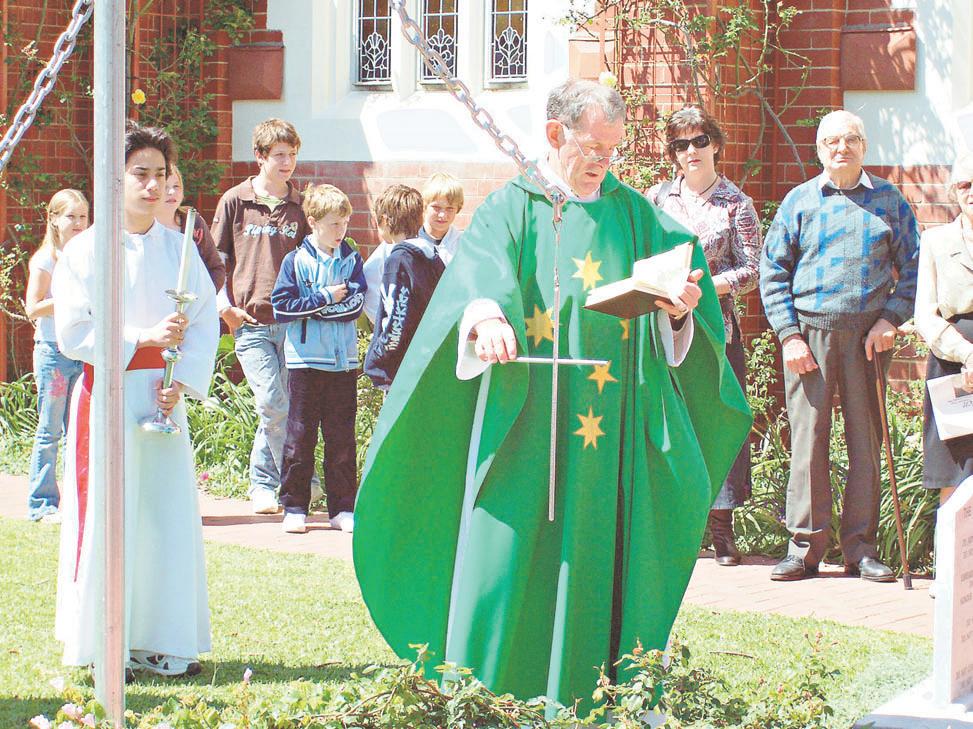
St Thomas the Apostle Parish, Claremont has erected a Rosary Garden structure, consisting of four upright steel columns, each one representing the Joyful, Sorrowful, Glorious and Luminous mysteries of the Rosary.
The columns are crowned by a cross. Linking the columns are chains along which the roses will be trained and thus form the beads of the Rosary.
The structure commemorates the Year of the Rosary from October 2002 to 2003 and has been erected to commemorate the pontificate of Pope John Paul II, who made the most dramatic change in the Rosary since its beginning by introducing the Mysteries of Light: Christ’s Baptism in the Jordan; Christ’s self-revelation at the marriage of Cana; Christ’s proclamation of the Kingdom of God and his call to conversion; The Transfiguration; and the Institution of the Eucharist.
Parishioners gathered in front of the church last Sunday after 9.30am Mass in
beautiful sunshine, as Parish Priest, Fr Brian O’Loughlin, VG blessed the Rosary Garden.
The date was chosen as the Sunday closest to the feast of Our Lady of the Rosary. The project was designed by parishioner Tessa Watson and executed by a local tradesman.
The garden has become a feature of the church, which will celebrate the 70th anniversary of the blessing and opening of the first stage on November 25.
Archbishop Hickey will visit the parish for the occasion and will bless and dedicate the stained glass windows which are currently being installed in the sanctuary. That blessing will take place in the Vigil Mass commencing at 6pm followed by a cuppa in the parish hall. At 7.30pm there will be a commemorative pipe organ concert by visiting organist Thomas Heywood. Tickets for the concert will be available shortly from the parish. Phone 9384 0598 or email: claremont@perthcatholic. org.au or visit: www.claremontcatholic.org.au
Bishops warn open slather on cloning hurts all
October 11, 2006
Australia’s Catholic Bishops this week issued a statement on human embryo cloning and destructive embryo experimentation. The full text appears below.
The Australian parliament and the wider community are engaged in a very important debate over whether to allow human embryos to be deliberately created and then destroyed for scientific research.
In particular, proposals now before the Federal Parliament seek to radically revise the decision taken by the same parliament in 2002, to prevent human cloning.
This has been prompted in part by a review of the legislation chaired by the late Justice John Lockhart, which recommended the lifting of almost all of the existing ethical and legislative constraints in this area.
The Catholic Church is not opposed to stem cell research. On the contrary, we are strong supporters of research based on adult stem cells, as well as those which are derived from umbilical cord blood. Our Church supports ethical stem cell research through its research institutes, healthcare services, teaching hospitals and health professionals.
Old debate: New dangers
In 2002, the Federal Parliament passed legislation allowing embryonic stem cell lines to be extracted from viable human embryos ‘left over’ from the IVF process.
At that time, we warned that the Government had crossed a new and dangerous line by creating an expendable class of human life. The evidence of this is now sadly clear in the legislation currently before the Parliament.
These new Bills seek to take us from using ‘spare’ human embryos, created for reproduction, to creating a new class of human embryos, never to be used for reproduction, but only for research.
This is a complete reversal of the Parliament’s decision in 2002, which unanimously rejected human embryo cloning.
Since 2002 there have been no significant scientific developments to justify more
in brief
A few pops with a paddle can turn a school around
While proposals are on the table in Britain and New Zealand to ban even parents from smacking their children, corporal punishment in schools is making a comeback in parts of the US. Some 28 states have banned it and many schools don’t use it anyway, but in the 2002-2003 year more than 300,000 schoolchildren were disciplined with corporal punishment - usually one or more blows with a thick wooden paddle. Of those students, 70 per cent were in five Southern states.
One of those states is Texas. At a middle school in Fort Worth, principal Anthony Price reinstated the practice - which he refers to as taking pops - after he was hired to turn around an institution rife with fights, students cursing teachers and gang activity.
Price designed a “discipline ladder”, beginning with a warning for a first offence and escalating through push-ups, detentions and isolation from other students during the school day. Finally there is the fifth rung, when, in consultation with parents, students can choose among corporal punishment, having their parents “shadow” them through a full school day, night school or outright suspension. In eight cases out of 10, he says, the students choose the paddling,
permissive legislation and no change in the fundamental ethical issues.
Creation for Destruction: An Ethical Minefield
The destruction of viable human embryos, however they are created, is never to be condoned. These new Bills, however, create a new contempt for life by:
• Creating embryos purely for the purpose of destruction, further dehumanising the human embryo.
• Introducing new categories of human embryos, including clones and embryos with mixed DNA.
Introducing cloning and the mixing of human and animal genetic material into this field of research only compounds the promotion of curiosity over ethics.
Similarly, using deceptive terms such as ‘therapeutic’ cloning where no such therapies exist is misleading and harmful. We were all embryos once.
Within those cells which comprise the embryo, lies all the genetic information which is essential to the people that we are today.
The human embryo cannot continue to develop as anything other than a human being.
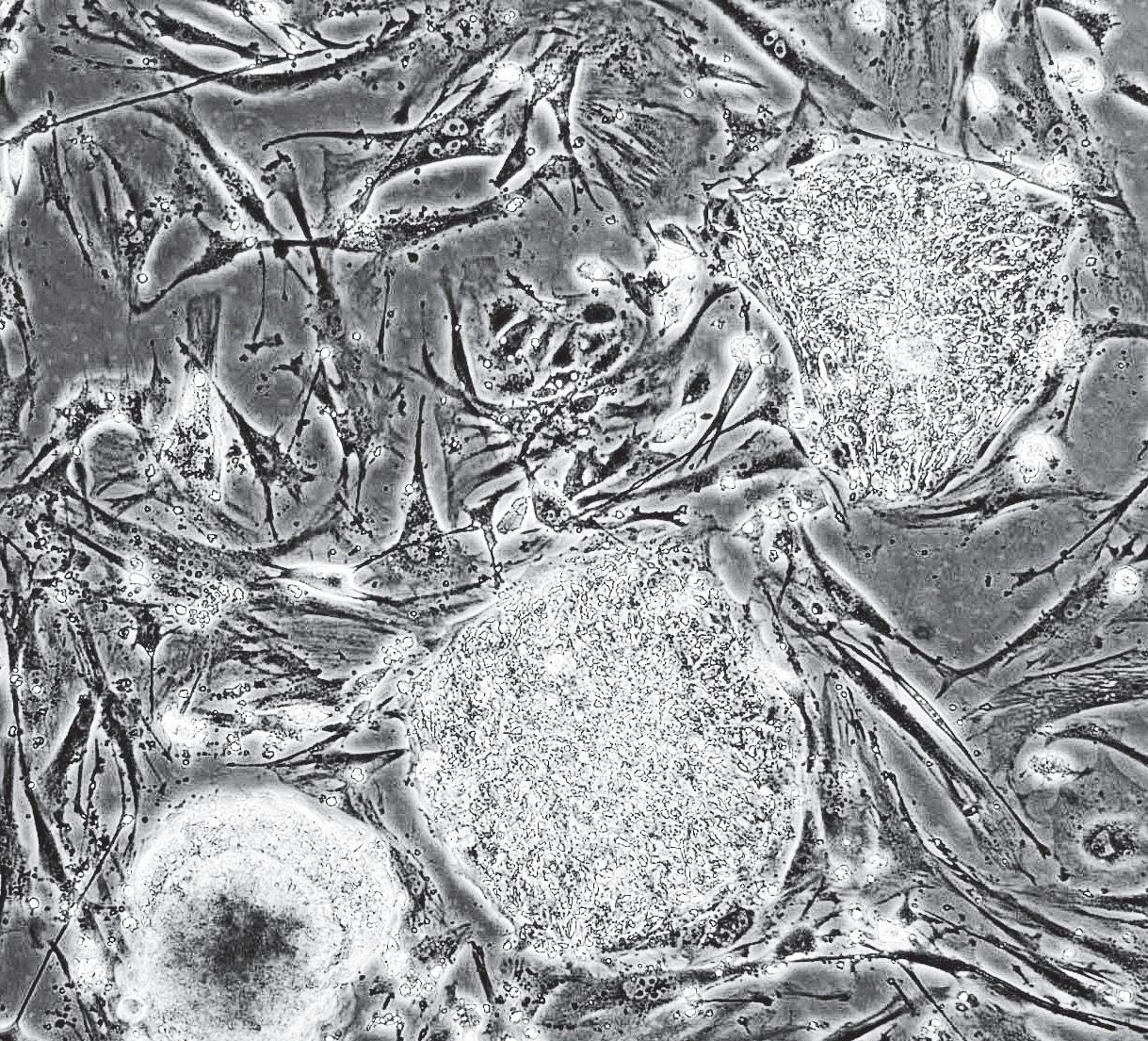
Therefore, it has intrinsic human dignity and should be afforded that most basic of human rights – the right to live, to grow, to prosper. To create a human embryo with the express purpose of destroying it for research is to enter into a dangerous and perverse form of human experimentation. A common humanity
This is not a religious argument. We do not argue against destructive experi-
A U-turn too far on cloning
■ By Fr Joe Parkinson of the LJ Goody Bioethics CentreOur Bishops have made a clear, rational and unequivocal statement on the sad situation which may well unfold in Federal Parliament in the next few weeks.
As incredible as it seems, the Parliament which voted overwhelmingly to outlaw human cloning just four years ago seems about to make a complete U-turn on the
although this is allowed only a few times. “If it’s not changing their behaviour, then we … try something else.”
This approach has had “a huge effect” on his school, says Price. “The rule is, never hit in anger. We always talk to the child before the punishment, make sure they understand why it’s happening, and then talk to them again afterward. None of it is cold or harsh. We try to treat the kids like they’re our own.”
FAMILYEDGE
Germany will pay parents of newborns to stay at home
In a bid to encourage couples to have children, the German Parliament last week passed a law allowing parents to take paid leave to look after newborn children. The parents of children born after January 1, 2007 who have stopped work to look after the child will receive 67 per cent of their net salary up to a ceiling of 1800 euros (US2,280) a month for a year.
basis of unfounded promises and unproven technologies.
Every thinking person wants to promote good medical research, and all of us want to find treatments for diseases, but this is not good medical research and there is absolutely no guarantee that any treatments will ever be developed on the basis of these techniques. It is not too late to contact your federal member and senators with the strong message to vote ‘no’ to therapeutic cloning.
Sterility tax mooted for Russia
The Russian Duma is working on a bill that would exact a “sterility tax” from childless citizens.
It would not be the first time such a policy has been used to boost the country’s population.
In 1941 Stalin ordered a tax of 6 per cent of salary on bachelors, single people or those with a small family. The rate was reduced for those on low incomes, and people could be exempted altogether for health reasons.
Even so, for over 40 years Russia has been in the list of countries with the lowest birthrates in the world.
Reinstating the tax would help to fund payments for mothers that have been ordered by President Putin.
- FamilyEdge
Teens think twice about sex when parents are in the loop
mentation on embryos simply because we are Catholic, but because of basic human values.
As a society we cannot seek to alleviate the suffering of some people by creating and then killing human life.
All of us wish to find cures and treatments for disease or genetic conditions.
Many Australians are afflicted by terrible suffering and we share with them the hope for a cure or effective treatment.
But allowing scientists open slather on human embryos for research is not the way forward.
We pray that in the upcoming conscience votes on this issue, our federal parliamentarians will consider the impact such changes would have, and reject scientific experimentation on that most precious and vulnerable of our brothers and sisters, the human embryo.
- this statement is also available from the bishops’ website
Fr Michael Gaughran SSC Visits WA
Fr Michael Gaughran is responsible for the Marian movement of priests
October 30 - November 2
• Dynamic Speaker
• Bring the Gospel to life
• Spreading Our Lady’s Work Program
Monday October 30
St Patrick’s Church York, Day of reflection
Tuesday October 31
Redemptorist Retreat House North Perth - Day of Reflection
St. Jerome Church, Munster - Cenacle, Mass, Talk
Wednesday November 1
That could be extended to 14 months if the father undertakes the childcare for at least two months. Or, if both parents want to be off work at the same time, they can each receive the payment for seven months. Parents can also benefit from the new measure if they work less than 30 hours a month. The payments will be increased by 10 per cent for each additional child under six years old in the household.
Laws that require minors to notify or get the consent of one or both parents before having an abortion reduce risky sexual behaviour among teens, according to a new American study.
FAMILYEDGE
Jonathan Klick and Thomas Stratmann found that gonorrhea rates dropped by an average of 20 per cent for Hispanic girls and 12 per cent for white girls in states where parental notification laws were in effect.
- FamilyEdge
St Bernadette’s Church Glenda1ough Day of Reflection
St Bernadette’s Church Glendalough Cenacle, Mass, Talk
Thursday November 2
Legion of Mary Centre, 36 Windsor St. Perth - Day for Priests Cenacle, Mass and Talks at all venues.Bring lunch to share.
Enquiries: 0413 707 707 or 93418082
Perspectives
letters to the editor
Friday 13th, a day of Grace
Tomorrow, Friday October 13, will be considered unlucky by many, but it is no day of superstition for Catholics. It is the 89th anniversary of the last appearance of Our Lady at Fatima in Portugal, the occasion of the famous miracle of the sun witnessed by more than 70,000 people.
PO Box 75, Leederville, WA 6902
Tel: (08) 9227 7080, Fax: (08) 9227 7087 cathrec@iinet.net.au
Mary, the Mother of God, began appearing to three young children (the oldest 10) on May 13, 1917 and thereafter on the 13th of each month until October - except for August when the children had been imprisoned and threatened with death by civic officials, and in that month the Virgin Mary delighted the children by visiting them on August 19 when they were once again free to tend their sheep.
During the June apparition, the children asked Our Lady for a sign that would convince people that their story was true. Mary promised them a miracle at noon on October 13, but gave them no indication of what sort of miracle. The promise was repeated in July, August and September.
The miracle was delivered on time and in most spectacular fashion.
Portugal at the time was extremely anti-Catholic. In the period leading up to the October miracle, the biggest daily newspaper in the country Seculo attacked the “psychosis, epilepsy and collective suggestion” behind this “medieval reactionism”.
God’s love is greater
The early Church had no knowledge of such a place or state as Limbo in the next life.
Instead, for centuries Christians relied on Matthew 18:10: “See that you never despise any of these little ones, for I tell you that their angels in heaven always behold the face of my Father in heaven.” Can you visualise the angels of unbaptised infants seeing their charges sidelined?
Divine love
On Page 16 of The Record (September 14.) you give us “The Dynamics of Love” by St John the Apostle. St John’s first words (Chapter 1) are “In the beginning was The Word” which translates into “Love” (divine). However everything went astray when sin entered the world.
By the power of Satan the “love” that Adam and Eve had turned nasty through sin; “the forbidden fruit”, and “love” as we know it today, took on a whole new meaning - “lust”. Which is confused with true love or Divine Love.
God made animals and insects to procreate by sex, but man was to be superior to that sensual act and above the animal kingdom. God had a different and immortal way for man to multiply in God’s love.
When Satan tempted Eve she took it to Adam and by partaking in that sin they lost their paradise and God’s favours. From then on, as the bible says: shame fell on them.
Eve would bear children in pain and Adam would labour by the sweat of his brow all the days of his life. Fortunately, God’s love remained with humanity and in the world, for in His perfection He could not be a failure.
Out of this evil act of man the love of God persisted for us; God would show us His infinite love and mercy by bringing about our salvation. Essential in all of this was the Blessed Virgin Mary (Proverbs 8:22) for it was in Her that the Lord found delight and she interceded for us.
His thought for us is to live in paradise; this paradise will one day be opened for us again. We received redemption through the sacrifice and atonement for sin of His only begotten Son.
On Monday October 15, the paper’s reluctant but honest editor, Avelino de Almeida, published his own detailed eyewitness account of the visually spectacular miracle - and was bitterly attacked by fellow “freethinkers” for his integrity. Similar articles followed in numerous other papers, all of which had sent journalists to the site to write articles about the failure of the miracle prophecy.
Jesus said: “Suffer the little children to come unto me, and forbid them not, for of such is the kingdom of Heaven.” (Mark 10:14, Luke 9:50). Who are we to defy this?
France and large parts of Europe had been swamped with miracles after Mary appeared in Paris in 1830 and gave us the medal which quickly became known as the Miraculous Medal.
It was as though Our Lady had arranged the witnesses of her choice to try to open the eyes of a blind world.
Not all the world was blind, of course, and the miracle of Fatima gave great impetus to the Virgin Mary’s insistent calls for prayer - particularly the Rosary - to try to fend off an even worse war than the 1914-18 conflict, and the scourge of communism, even though the Russian revolution had not occurred at the time of the apparitions.
France and large parts of Europe had been swamped with miracles after Mary appeared in Paris in 1830 and gave us the medal which quickly became known as the Miraculous Medal.
Miracles flowed again (as they do to this present day) after Mary appeared to a young girl at Lourdes in 1858. Miracles of healing began to occur at Fatima soon after the first apparition, but the October 13 display was unique by any standards.
All such miracles are a reminder to us that the Gospel miracles of Jesus are real, and the God who gave them to us is an ever-loving God who goes to great lengths to help us to open our hearts and minds to accept the reality of his love, now and for all eternity.
God’s love for us is freely given, and, in perhaps his greatest gift to us, we are free to accept his love or to revile it. God is love, and who knows better than He does that love cannot be forced. It can only be free.
But the freedom to accept or reject God’s love, to believe or scoff at His truth, is not the freedom to change truth. We are free to ignore it or deny it, but we can’t change it.
Many of the miracles of the Gospel were related to specific things the people of the Old Testament could recognize and therefore recognize the promised Messiah in Jesus.
Many of the apparitions and miracles of the nearly 2000 years since then have been related to particular erroneous attitudes and beliefs that led millions away from the truth about God and the truth about themselves.
Because it was so specifically predicted as to time and date and place, and because it was so spectacularly different, the miracle of Fatima seems a most appropriate reminder for a world that has largely succumbed to the notion that the universe and all that occurs in it are simply parts of a mindless, materialist process that began inexplicably billions of years ago and will continue inexplicably for as long as it does.
Modern science has brought us wonderful knowledge and deep understanding of many aspects of how the world works. Unfortunately, this knowledge has been accompanied by a strong tendency for many to pretend that that is all there is to it: the world is materialism and there is no room for our spirit, and much less for God.
Fatima is a brilliant reminder that materialism is not all there is.
And while we may grieve deeply for family, friends, and community leaders who try to live as though God doesn’t, let us remember that their refusal to see ‘the mighty works of God’ occurs only because they are exercising the gift of freedom God has given them.
Since they are operating within one of His gifts, we know that He is operating in them, and therefore we can hold fast to our faith that our prayers for them will be answered. The Rosary is a great way to strengthen our prayers and our faith.
A modern person might also reflect that the scriptures “Unless a man be born again of water and the Holy Ghost he cannot enter into the Kingdom of God” (John 3:5), and in another place “Those who believe and are baptised shall be saved ...”(Mark 16:16), are validly interpreted to mean they apply to adult human beings. Belief and baptism go together, but a baby cannot be examined by God for belief!
Our forefathers were taught that Jesus told his Apostles, worried about the difficulty of attaining the kingdom of Heaven, “With men this is impossible, but with God all things are possible.” (Matt 19:26)
It is the overall teaching of the New Testament that Jesus came
But, after all we did and are doing are we worthy of this redemption? God in His Wisdom and mercy will sort out the good and the evil when the time comes.
He is the artist we are the clay with God’s image that has been infused into that clay, together with immortality, free will, wisdom and knowledge of what is good and what is bad and what Divine Love has done for us.
W Wlodarczykthat all humanity might be given the opportunity to be saved. In fighting the pro-circumcision group in the early Church, Peter discussed the Gentiles’ position: “But we believe that we are saved in the same way as they are: through the grace of the Lord Jesus.” (Acts 15:11)
To rely on a few seemingly restrictive scriptures as if they could erode the other scriptures, and nullify the boundless love and compassion of God, and to claim that the councils of Florence and
Trent were “Ecumenical” when they obviously left out more than half the Christian bishops, does not advance the Church’s mission on earth.
The Jesus who told the Jews that the Father could raise up children of Abraham from stones (Matthew 3:9, Luke 3:8), is quite capable of enfolding unbaptised children in his arms in Heaven, and handing them to their mothers, and fathers.
John Massam GreenwoodTo sleep, perchance to lose weight
Two epidemics in Western society - sleep deprivation and obesity - may have a causal link, the journal Nature reports. Biologists are asking whether our cavalier attitude to sleep, which has seen Americans’ daily sleep drop from between eight and nine hours in 1960 to less than seven hours today, may be at least partly responsible for expanding bodies. A 12-year-old girl began to lose weight and her craving for junk food dropped after a researcher got her to increase her sleep from seven hours to nine or 10. And the idea is being further tested in a clinical trial in Bethesda, Maryland, by David Allison of the University of Alabama, Birmingham. At least a dozen reports from different parts of the globe have found that people who sleep less are more likely to have a weight problem. James Gangwisch of Columbia University and colleagues in one large study found that those between the ages of 32

and 49 who slept for five hours each night were 60 per cent more likely to be obese than those who slept for seven or more. A British study shows that poor sleep in three-year-olds is predictive of obesity at age seven, alongside other risk factors such as having overweight parents or watching TV for long periods.
There is evidence that sleep deprivation affects metabolism and hormones, decreasing the hormone leptin (released by fat cells and signalling satiety) and
increasing ghrelin (produced by the stomach and signalling hunger). There are also links between the body systems that regulate sleep and those that control appetite in the brain. “Sleep affects our entire physiology and sleep deprivation will have adverse effects at all different levels,” says Eve Van Cauter of the University of Chicago. The national Institute of Health has promised as much as $2 million to further research in this area.
Vista
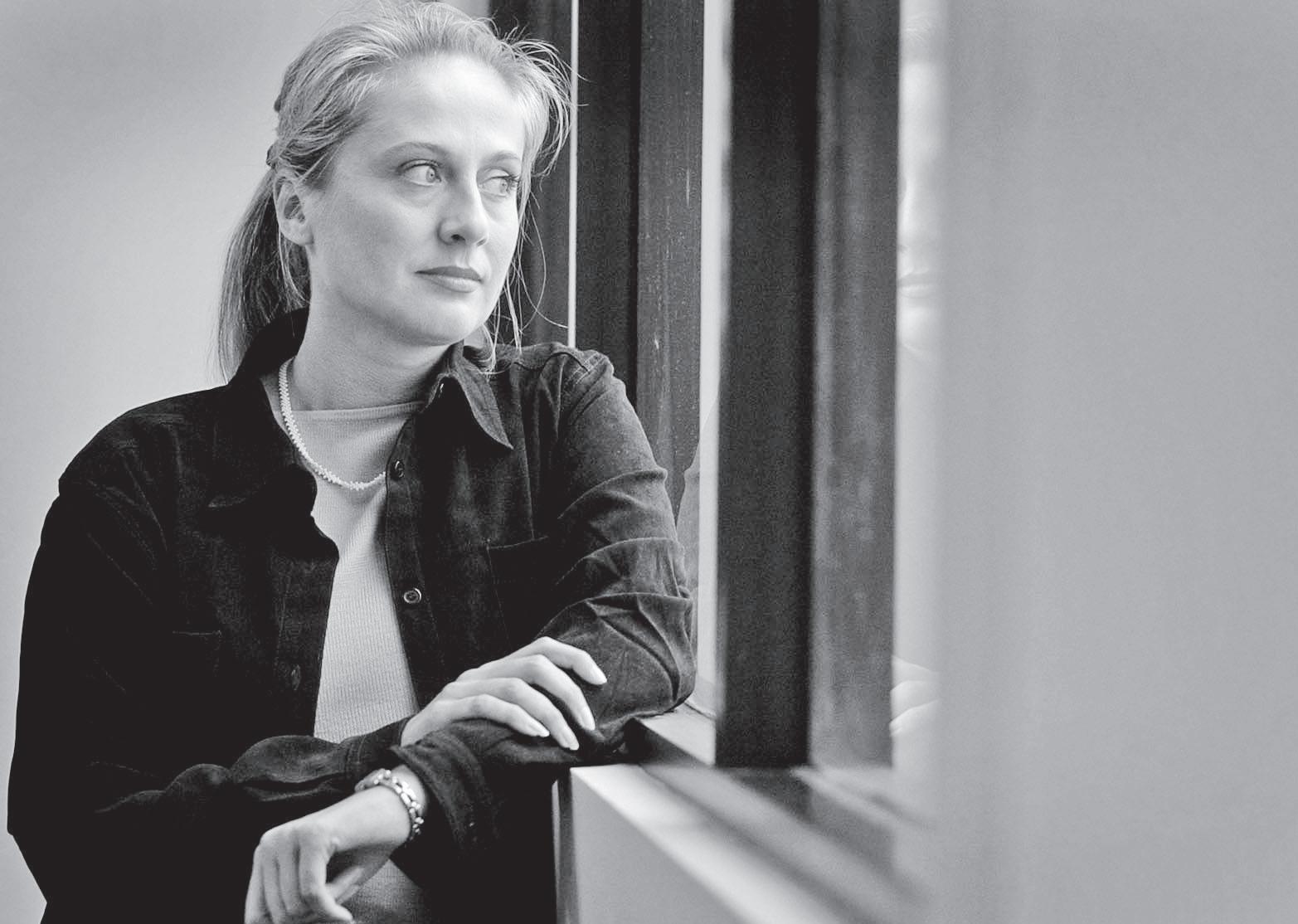
Fearing the bullet
■ By Geraldine CappMelbourne child psychologist Dr Reina Michaelson used to go to bed wondering if she would be killed while she slept. After reporting child sexual abuse to Victorian police, Dr Michaelson and her family were subjected to intense intimidation and surveillance. Her home was broken into, files stolen, her property damaged, mail interfered with and her phone tapped. Her mother’s dogs were drugged and her life was threatened.
“A couple of years ago I would go to bed at night having to be reconciled to the thought that I may not wake up, that I might get a bullet in the head,” Dr Michaelson explains. “Whenever I arrived home, I would scan the street to see if anyone was waiting. My family and I were under intimidation nearly every day for well over a year. We could not come out of our house without seeing a car with two nasty looking men inside it with walkietalkies. It was dreadful.”
Dr Michaelson has led calls for a Royal Commission into an organised network of child pornography, pedophilia and ritual abuse in Victoria. She is convinced by the evidence from survivors of abuse whom she has been counselling, and her experiences in dealing with the Victorian police, that there is significant police corruption and protection of pedophiles. When she anonymously
“A couple of years ago I would go to bed at night having to be reconciled to the thought that I may not wake up, that I might get a bullet in the head... whenever I arrived home, I would scan the street to see if anyone was waiting. My family and I were under intimidation nearly every day for well over a year.”
reported organised crime involvement in child abuse to Crime Stoppers, the information was passed to the people at the centre of Dr Michaelson’s allegations. She also has another battle on her hands in the Victorian Civil and Administrative Tribunal. An alleged occult group, Ordo Templi Orientis, is using Victoria’s controversial religious vilification laws, introduced by the Bracks Governemnt in 2001, to sue Dr Michaelson. OTO claims that an article on the internet wrongly connected their organisation with satanic ritual abuse and pedophilia.
Catholics are viewing the complaint against Dr Michaelson as a test case with major implications for freedom of religion and freedom of speech. She is represented by Christian legal firm Khor and Burr and the case will be heard in November.
“It is outrageous, really,” Dr Michaelson says. “People should be able to speak out about child sexual abuse no matter what the context without the fear of going to prison for having done so.
“If I did not have faith in God I would have given up long ago. I have a wonderful Church. They have been with me through the blackest times. I have wonderful friends who pray regularly for me and the work I am doing. I have a great family and a wonderful husband but it is the foundation with God that is most important. When things have been most bleak, when I have thought there is no hope, and when I have thought I am not going to survive, God has given me miracles.”
Dr Michaelson does not make an immediate impression as a crusader for child protection. She is softly spoken, speaks carefully and has a reserved demeanour. But she has
an obvious determination to help victims of abuse and is well qualified to do so.
She has a doctorate in psychology from Victoria University and is an international authority on preventing child sexual abuse.
In 1995, she established the first Australian school-based Child Sexual Abuse Prevention Program (CSAPP) and was Young Australian of the Year in 1997 for community service. CSAPP received the Australian Violence Prevention Award in 1998 and the National Child Abuse Prevention Award for Innovation in 2001. In the same year, Dr Michaelson’s PhD, which documented and evaluated the development of CSAPP, was awarded the Vice Chancellor’s Medal for Excellence in Research. She is also a consultant to UNICEF and other international human rights organisations.
Dr Michaelson grew up in Melbourne with twin brothers five years older. She experienced sexual abuse perpetrated by a member of her extended family, who is now deceased. She says the abuse was “fairly mild” compared to what other people have experienced.
“But being very sensitive, the abuse impacted on me quite significantly, and as a teenager, I wanted to use that experience to do what I could to ensure that other children didn’t go through what I went through,” she explains.
“When I was 19, I prayed a very significant prayer to God for him to use my life to assist in the prevention of child sexual abuse and to make an impact in that area.”
When the protector becomes the target Babies smile for the assassin
Continued from Vista 1
Dr Michaelson’s family was not religious but as a child she sensed God was real. “I felt strongly that God existed and that I had a relationship with him. When I was 11, I was invited by a friend to the Good News Club. I had no idea what it was but when I got there we read from the Bible and that is how I learned about Jesus. It all made sense to me.”
When she was 14, she and one of her brothers became strong in the Assemblies of God. Her family now attends a Baptist Church.
Dr Michaelson developed the beginnings of CSAPP in her first year at university. “The incidence of child sexual abuse is pretty stark and terrible,” she says. “If it were any other illness, we’d say we have a serious epidemic.
One in three to four girls and one in seven to nine boys will experience sexual abuse, but it’s probably more boys than that.
“When I was in my early 20s, I worked in a child care centre where there was a four-yearold girl who was very clearly being sexually abused. It was before mandatory reporting in Victoria. I rang the Children’s Hospital to find out what I could do to help this little girl and I told my colleague what I had done, who told the boss and then I lost my job on that basis. Now we have mandatory reporting and you lose your job if you don’t report it. That is a really major progression although there is room for improvement in Government intervention services.
“Some of the authorities, particularly politicians, are much more conservative in their approach to dealing with this topic. They are concerned that if they deal with it in a serious way, the public will get scared and there will be moral panic or a backlash. From my work with members of the community, which has
involved thousands and thousands of people, the community wants the problem to be dealt with properly. The community is far more advanced in its wish to deal with this problem than governments and some institutions.
“I see chronic under-resourcing in this area. People in government departments are working incredibly hard. They face the worst possible side of human nature and have to make the toughest decisions imaginable. They are given very few resources to deal with that.”
One of Dr Michaelson’s major concerns is the proliferation of child pornography, primarily though the Internet.
“It used to be a cottage industry where individual perpetrators would make their own porn through their own children or access to other children,” she says. “Now there is so much money in it. It’s a multi-billion dollar industry around the world and organised crime is involved in it. I have worked with parents who have allowed their children to be used in child porn and benefited from it financially. The mother in the case I am thinking of had a gun to her head through all those years and escaped when she could, but organised crime syndicates will have access to families to do that kind of thing. This is happening in Australia for sure.”
Dr Michaelson says it is critical for parents to have open communication with their children. “Your child should know that he or she can talk to you about anything and that there is no taboo topic. I recommend that parents teach children that their private body parts have very special safety rules. If anybody touches their private parts in a way that is unsafe, whether they know the person or not, they need to tell someone they trust: mum, dad, a trusted relative or a teacher.”
As a preventive measure, Dr Michaelson recommends the simple ‘No-Go-Tell’ strategy.
• ‘No’ means teaching a child to say no if an adult wants to touch their private parts or if they want the child to touch their private parts.
• ‘Go’ means get away as quickly as you can.
• ‘Tell’ means tell someone you trust.
• Work with your child to develop a network of trusted adults so he/she can keep telling someone until they get help.
• This strategy can apply to bullying and peer group pressure to drink alcohol, take drugs or engage in anything dangerous.
• For someone who has been abused, Dr Michaelson recommends getting help from Government-funded centres, which specialise in sexual assault or by contacting Bravehearts (www.bravehearts.org.au).
• If you are aware of a child being abused, report it to WA’s child protection services. CHILD SEXUAL ABUSE PREVENTION PROGRAM WEBSITE: WWW.CSAPP.COM.AU
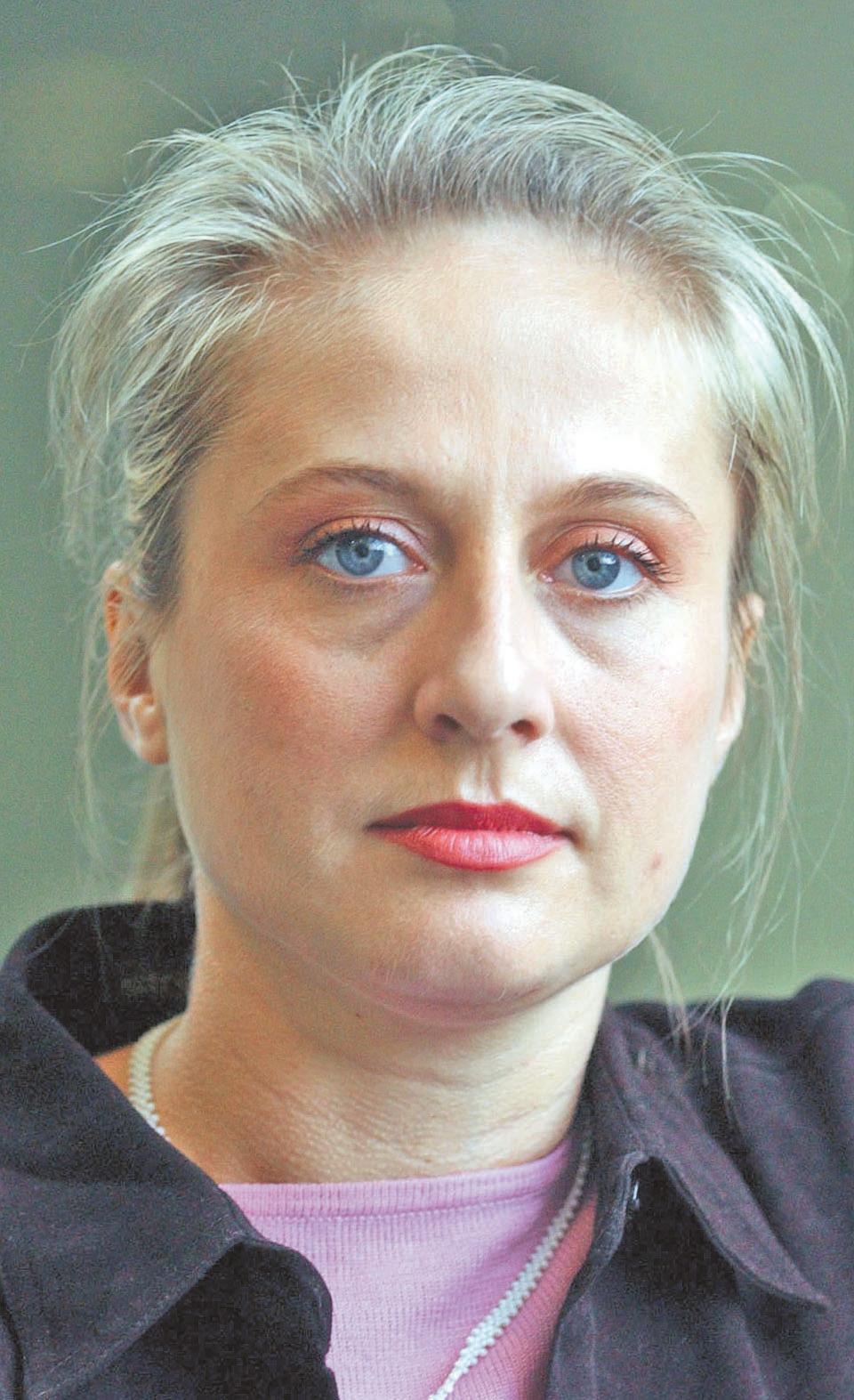

authority on foetal ultrasound scanning, Professor Stuart Campbell. If there were a Nobel Prize for honesty in medicine Professor Campbell would be a candidate. While many with similar credentials run for cover on the abortion issue, he is calling for the maximum age for abortions to be cut from 24 weeks gestation to 18 weeks. To some of us this stand may not seem very courageous, but it’s too radical for the British Medical Association, whose annual conference voted down a recommendation to reduce the limit from 24 weeks to 20 weeks last year. At the time, Campbell described this as “bizarre” and “barbaric”. And this is

For 40 years he has watched images of the unborn child become more and more detailed and lifelike on his ultrasound screen as two-dimensional scanning gave birth to 3-D and then 4-D scanning - a technique he pioneered in the UK. Two years ago he amazed the nation by publishing images now available of foetuses as young as 11 weeks yawning and “walking”, and at 20-
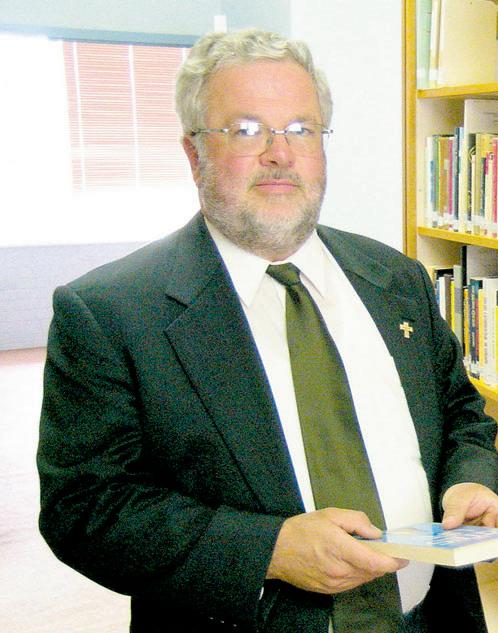 ■ By Dr Joe Parkinson
■ By Dr Joe Parkinson
The Sydney Morning Herald’s medical editor Julie Robotham this year reported that the total number of IVF embryos in storage in Australia and New Zealand passed 100,000 for the first time in 2003.
This would be a very a conservative estimate today.
The WA Reproductive Technology Council Annual Report 2004-2005 notes the number of IVF embryos then in storage in WA as 13,362.
WA has about 10 per cent of the national population, so extrapolation suggests there would now be at least 134,000 embryos in storage in Australia alone.
At the same time the National Health and Medical Research Council website notes that only nine licences have been granted for research using excess IVF embryos, involving approximately 1700 embryos.
Only four of these licences relate to stem cell research, and these involve a total of about 550 embryos. Conservatively, then, stem cell researchers in Australia have accessed only about 0.4 per cent of stored IVF embryos.
Even if just one per cent of parents are willing to donate their excess embryos for research purposes, the research industry is
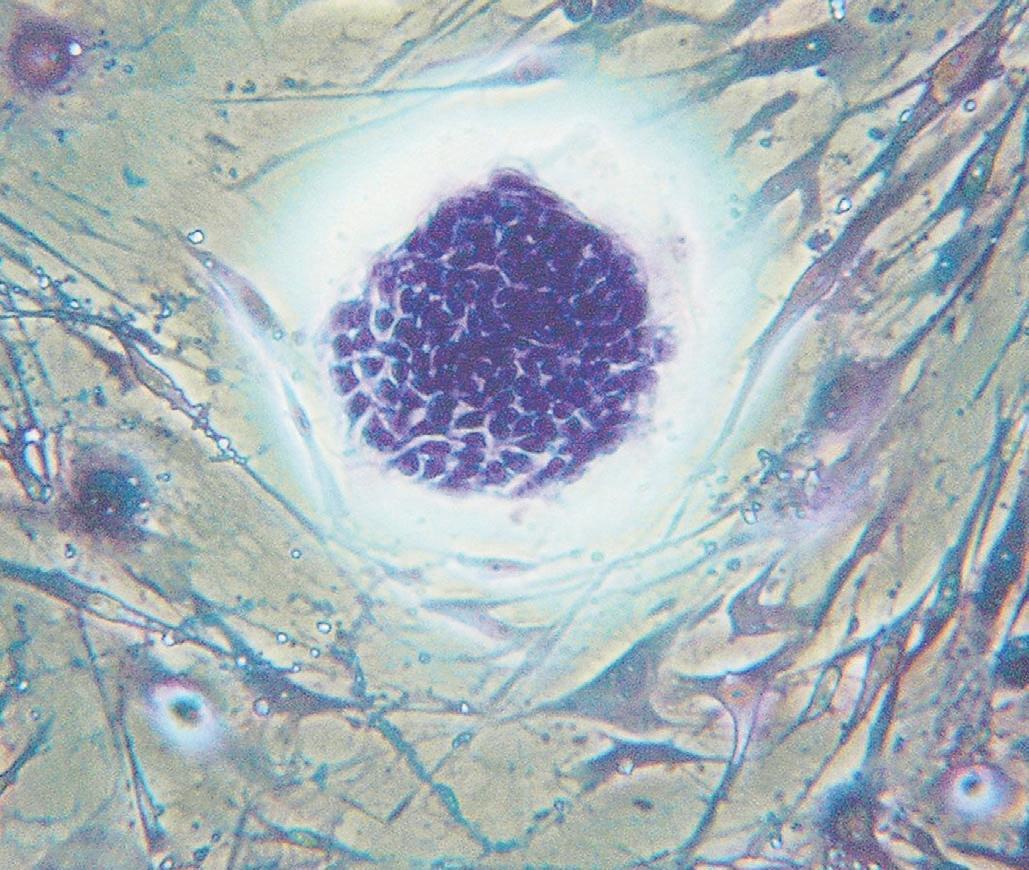
attitude to abortion. While he remains in agreement with “a woman’s right to choose”, he wants to see that choice limited by the now obvious “signs of humanity” in the unborn child. For this he has been accused of “sentimentality” and, to the extent that his argument rests only on what we can see, it is ity” in a human being is it all right to kill that
cy. Premature babies are surviving at younger and younger ages. The UK Abortion Act was changed in 1990 in recognition of this fact, and the maximum age for abortion reduced from 28 weeks to 24. At that stage, a baby born at 23 weeks had less than a 23 per cent chance of survival. Now it has a 66 per cent
These extremely premature babies raise another point of consistency, says Campbell. “Babies born at 22 weeks are never treated

Why, if there is scientific evidence to prove their brains are too under-developed to feel pain or distress, would they be given medication to protect them from pain?” And if these babies just might feel pain, why not give the benefit of the doubt to those inside the womb? After all, when he gently pushes a baby in the womb at 28 weeks, it will make a crying face because it has been disturbed. In spite of such uncertainties and inconsistencies, there are 1200 terminations a year between 22 and 24 weeks in the UK (and well over 7000 from 18 weeks and later). The worst of it, in Campbell’s view, is that 70 per cent of these are for “social” not medical

This is where to focus, he says, in changing the law. “These are healthy babies, not brain-dead, feelingless creatures. When I see a foetus that can smile at me, I know absolutely that we should not tear it from



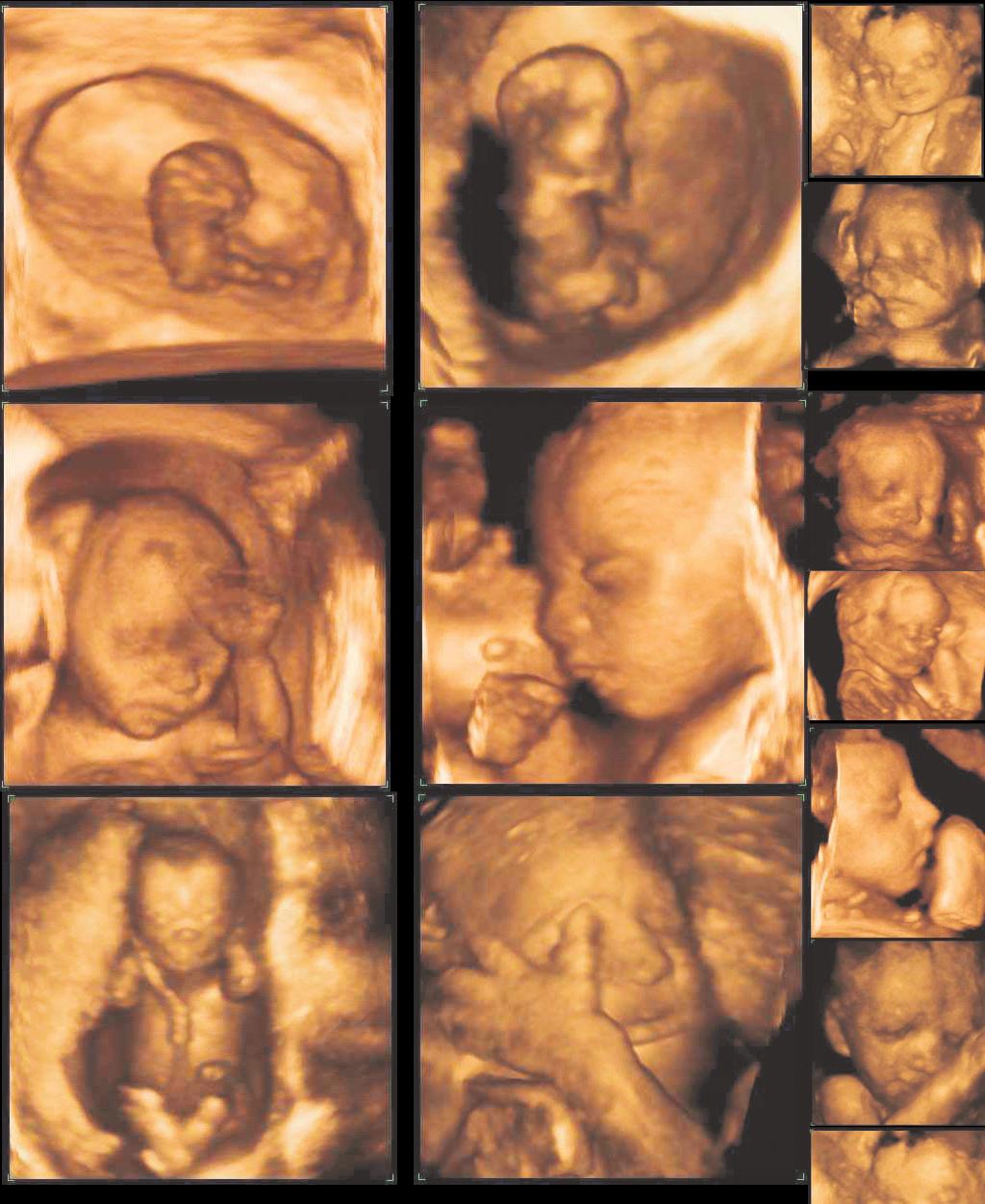
Professor Campbell’s declaration makes me want to stand up and cheer. Yes, it falls far short of what many of us want in this area. Yes, there are gaps in its logic and that slightly irritating bow to “a woman’s right to choose”.Judging by an interview he gave last year, it even falls short of what the man himself would eventually like to see. But this is a bid for the possible, something that the public can see - and feel - for themselves is right, and it deserves the support of everyone who
Does research into the treatment of genetic diseases depend on access to cloning?
still substantially underutilising the available supply of embryos.
Anecdotal evidence bears this out, as researchers themselves report that some parents are offering their stored embryos for research purposes, but there are not enough research proposals forthcoming to make use of this resource.
The implication must be that the current push for therapeutic cloning for stem cell research does not relate to research being done under existing licences.
Nor does it seem to relate to research aimed at developing stem cell therapies, which seeks access to embryonic stem cells in order to study, control and utilise the processes of cell differentiation.
Existing supplies of excess IVF embryos would suffice for this purpose.
The current push for therapeutic cloning instead seems to be aimed at specific research, such as the generation of stem cell lines affected by particular genetic anomalies in order to study the etiology of those specific genetic conditions.
So it seems clearly misleading to promote therapeutic cloning on the grounds that this technology is necessary to develop ‘stem cell therapies’. Future therapies will probably not involve stem cells at all.
Rather, embryonic stem cells affected by,
say, Huntington’s Disease could be cultured in order to study how that particular genetic anomaly manifests as the body’s cells develop.
Then it might be possible to devise and test interventions to ‘reprogram’ the embryo, perhaps by ‘switching off’ the affected genes so that the embryo’s cells develop normally.
Not only is this is a far cry from the promise of future ‘stem cell therapies’ allegedly available through therapeutic cloning, it could be achieved without authorising cloning at all.
Recent studies suggest that it is possible to ‘reprogram’ later stem cells so that they behave like embryonic cells. (Nature, 21 September 2006).
If this is true, it should be possible to obtain stem cells from babies affected by Huntington’s Disease, and reprogram these cells as well.
When they begin to behave like early stem cells, the necessary experiments could proceed as planned.
Research into the etiology and treatment of genetic diseases does not demand access to therapeutic cloning. There are simpler and less ethically fraught possibilities for researchers to explore.
- Fr Joe Parkinson is the Director of the LJ Goody Bioethics Centre in Glendalough
wants to turn back the tide of heartless killing that has swept away the lives of countless unborn children in the last four decades.
Earlier this week two United States scientists were awarded the Nobel Prize for medicine on account of their pioneering work in genetics. They had discovered a fundamental mechanism for controlling the flow of genetic information and this may, in time, lead to new treatments for a range of illnesses. They did what scientists are supposed to do: discover the truth and let us know so that we can take it into account.
Professor Campbell, through his research and clinical work, has confronted the truth about “the secret life of foetuses” and shown us that life in its amazing and moving detail. What is more, he has risked unpopularity by pointing out what that truth demands of a civilised society. Although he has received many accolades during his distinguished career, he may never get a prize for doing exactly that. But he deserves it. He has revealed something much more important for humanity than the secret life of genes.
Carolyn Moynihan is Deputy Editor of MercatorNet.
Morning after pill no ‘quick fix’ for abortion
The morning after pill, approved for over-the-counter supply in the United States last month, is not the “quick fix” to rising abortions rates that it was expected to be, according to a British public health expert. Writing in the current issue of the British Medical Journal, Anna Glasier, a director of family planning and well woman services in Scotland, says there is “a growing body of evidence which suggests that increasing use of emergency contraception does not have any effect on the rates of unintended pregnancy and abortion.”
In Britain, use of the morning after pill has grown from just 1 per cent of women requesting abortion in 1984 to 12 per cent in 2004. Abortion rates have increased over the same period from 11 per 1000 women aged 15 to 44 (136,388 abortions) to 17.8 per 1000 in 2004 (185,400 abortions). Ten different studies found that giving women a supply of “emergency contraception” to keep at home increased its use two- to threefold but had no measurable effect on rates of abortion or pregnancy. This was the pattern in Sweden and France as well as the UK, said Dr Glasier. She put it down to women not using the pills they had because they did not think they were at risk of pregnancy. “Emergency contraception is not going to be the quick fix solution to rising abortion rates,” she added. HEALTH24.COM, SEPT 18
‘Free condoms for children’ urge UK experts
Free condoms should be handed to children - possibly as young as 12 - in sports halls, shops and swimming baths, urges a report from a British government advisory group. The Independent Advisory Group on Teenage Pregnancy, which provides advice to ministers and monitors government strategy, does not specify the age group that should receive the condoms. The group also wants longer -lasting contraceptives, such as injections and implants, to be widely available.
They say it is critical for the government to “be brave’ and make sex education compulsory in schools “at all key stages”. The youngest primary school children should be taught about “relationships and friendships”; by age 10, pupils should know about physical changes in puberty and correct names for reproductive organs. Detailed discussion of sex would be compulsory for children of 11 and over and there should be lessons on abortion. Current lessons left pregnant teenagers ill-equipped to “assess abortion as an option”, the report says. Pills and condoms are already given out at some schools by health workers after lunchtime “advice sessions”, the Telegraph reported in August. LONDON
Opinion
Scientists setting kids a bad example
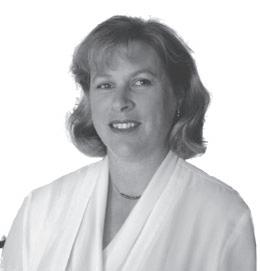
@ home
There are two news stories going on at the moment, two sides to the same coin, and the helpless and voiceless plight of children are vital factors in both cases.
On the one hand the general public has been outraged and shocked by the apparent failure of the West Australian Department of Community Development to successfully protect at least one child from abuse, injury and death.
On the other, there is a vigorous push by some members of Federal parliament to allow embryos - the smallest and most helpless human beings among us, let us not forget - to be created specifically to be experimented on and discarded.
Why on one hand is there universal and vocal horror and revulsion at the fact of a child’s untimely and unnecessary suffering and death, and on the other, very little publicity at all?
Quite apart from the fact that it is adult stem cell research that has yielded the only successful results in terms of disease management or cure, this push for unlimited embryo creation is sinister and repulsive in its utilitarianism. Do we really find it acceptable to destroy countless embryos in the search for elusive cures for human disease?
Do we really believe that is all the scientists will be doing once they
have carte blanche? Do we not find that idea even a little horrible?
Our whole culture is being destroyed by a hardening of the heart that goes with a failure to embrace and protect human life from its very beginnings.
Our refusal to accept the fact of a child’s full humanity from the moment of conception will be our undoing.
Our refusal to accept the full ramifications of our own acts is the mark of a society full of immature and selfish adults.
So much part of bringing up your children is to teach them that very fact - that all actions have consequences, and we have to live with them; and that all our actions either directly or indirectly affect not only ourselves but those around us, and not always predictably or immediately.
We can’t expect to have a caring, safe community respectful of other peoples’ rights and property when we ourselves disregard the sanctity of each human life regardless of its stage of development.
If we are only out to look after ourselves without regard for the well-being of anyone around us we must expect our children to develop that same attitude.
If we think it is all right to ignore or, even worse, to exploit the most helpless among us, how then can we possibly teach our children to care
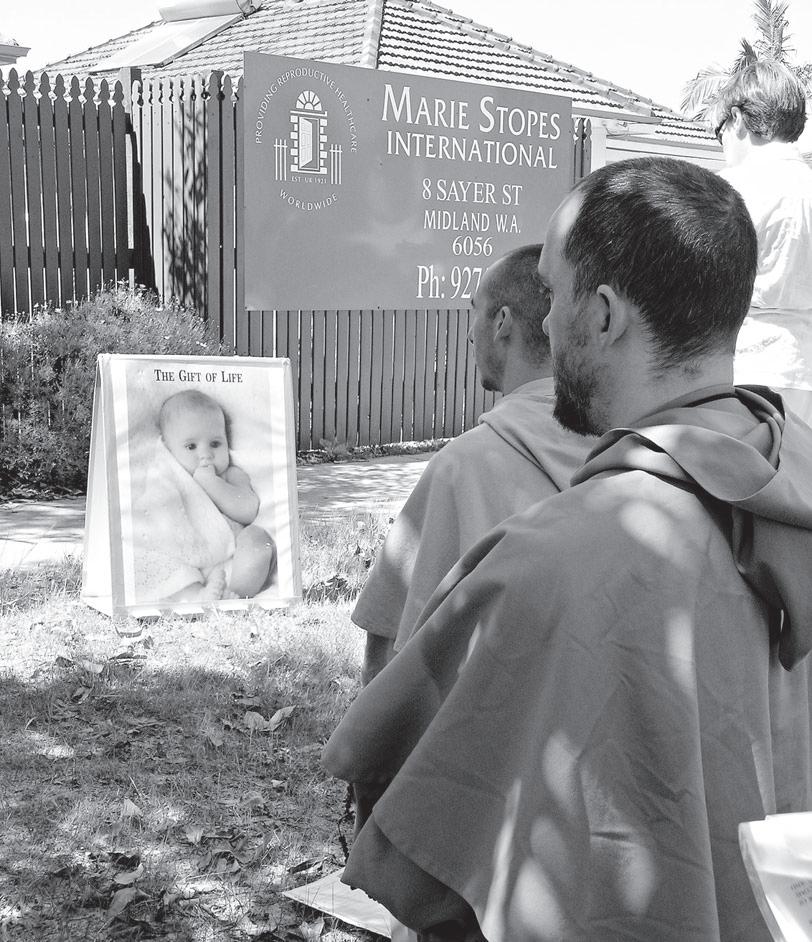
for and respect the weak, the poor, the sick and the elderly? We rightly decry violence and cruelty when confronted with it perpetrated on people or on animals. Why then
does the wall of silence descend when the ultimate cruelty of creating human beings for experimentation and destruction is about to be voted upon in Federal parliament?
i say, i say
We have a right to defend faith

Whenever some obscene or blasphemous work of literature, film or art attracts protests, the clever and sophisticated are on hand to point out that protesting against such things only increases publicity for them.
And many a witticism do they have at the expense of those they inevitably refer to as “the selfappointed guardians of moral purity,” a description that conjures up images of mad, gaunt, burning-eyed, cilice-sporting witchhunters or frustrated maiden aunts (funny how no-one ever describes, say, Martin Luther King as a “selfappointed civil rights advocate.”) The clever and sophisticated have a point.
The works of the quasi-fascist hyper-bore DH Lawrence such as Lady Chatterley’s Lover would never would never have achieved best-seller status had the British Government not launched an inept prosecution of Lady C., which gave the press a field-day and there are many other similar cases.
Many books long on the banned list proved to be, when they became generally available at last, practically unreadable, no doubt to the disappointment of those who had flocked to buy them.
I disagree with those who harp on about the fact Australia long banned certain famous classics because of their alleged (and actual) pornographic content.
I don’t think banning them did any harm, but I don’t think unbanning them did much harm either.
One looks today at Love Me, Sailor and wonders what all the fuss was about. Who would have struggled through James Joyce’s Ulysses if it had been freely available? And they were two of the better books.
Many were just trash, and quickly forgotten. Aristotle was wrong about some things, but he was correct when he said public taste was usually right in the long run.
There is no doubt that in some cases publishers and producers egg on and orchestrate protests against their works in order to increase sales.
Further, those who protest against certain works do not always have a terribly good record in terms of intelligence and discrimination.
A book containing four-letter words but promoting good values may attract severe condemnation and calls for banning (I know of at least one fairly recent case like this) while one written in bland language but thoroughly pernicious in its message slips under the radar.
The most evil film I ever saw
did not have anything as obvious as nudity or coarse language in it. But the intelligent and sophisticated should be taken up on at least two points: first, that to object to public money being spent on offensive material is not the same as banning it and is no threat to free speech; second, that not to protest against some evil book or film because this may only publicise it further means, taken to its logical conclusion, that no-one should ever protest against anything in these areas.
Some things are such that we must do more than simply walk away from them.
Christians have not only a right but a duty to defend their faith, and civilised people have, I think, a duty to make a stand against things that degrade the human condition.
This is by no means always counter-productive: there is no doubt that some intelligent protests and other actions against pernicious or evil material have made a difference and caused that material to be removed from the market.
There may well be times when it is right to make public or private political protests against public money being spent promoting vile material.
There are some fights which both larger strategic considerations and simple honour demand that we take up.
The risk of merely promoting what we protest against may pose a difficult dilemma, but one in which it is incumbent on us to act intelligently.
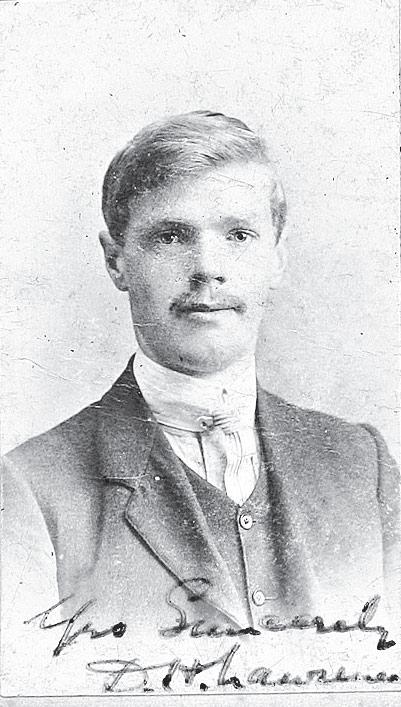
The World FEATURE
Putting kids back in the picture
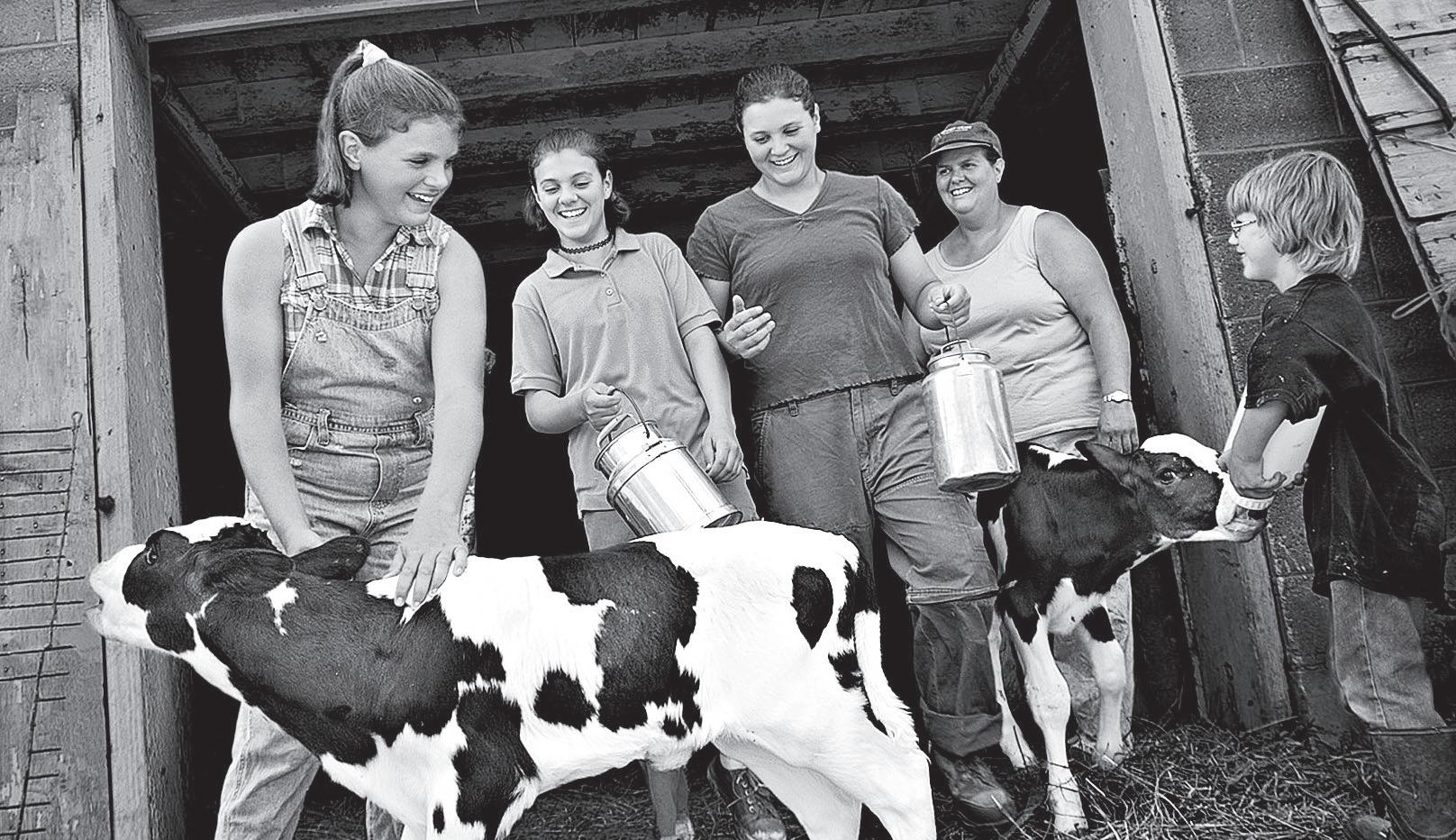
Kids left behind as parenthood is redefined
Family structures and parenthood roles are being redefined without sufficient consideration for the needs of children.
This is the warning of a report just published that describes worldwide trends in family law and reproductive technology.
“The Revolution in Parenthood: The Emerging Global Clash Between Adult Rights and Children’s Needs” was published by the Commission on Parenthood’s Future.
The commission “is an independent, nonpartisan group of scholars and leaders,” active in the area of the family, according to a press release on the website of the Institute for American Values.
The New York-based institute is one of the organisations behind the commission.
The author of the report is Elizabeth Marquardt, a member of the commission and author of the book, “Between Two Worlds: The Inner Lives of Children of Divorce”.
The report finds that worldwide trends in law and reproductive technologies are redefining parenthood in ways that put the interests of adults before the needs of children.
“The two-person mother-father model of parenthood,” it states, “is being changed to meet adults’ rights to children rather than children’s needs to know and be raised, whenever possible, by their mother and father.”
The revolution in parenthood
described in the publication comprises a variety of issues: high divorce rates; single-parent childbearing; the growing use of egg and sperm donors; support for same-sex marriage; and proposals to allow children conceived with the use of sperm and egg donors to have three legal parents.
“Progenitor A” and “Progenitor B”, instead of “mother” and “father”.
- In India guidelines on assisted reproductive technology issued in June 2005 state that a child born through the use of donated sperm or eggs will not have any right to know the identity of the genetic parents.
Pressure for other, more radical,
Studies on the lives of children of divorce show enormous negative consequences for them, not sufficiently considered when no-fault divorce was introduced.
A legal revolution
The report gives a number of examples of far-reaching legal changes in families, often introduced with a minimum of debate.
- In Canada the law allowing same-sex marriage also included a provision that eliminated the term “natural parent” in federal law, replacing it with “legal parent”.
With that law, the focus of power in defining who a child’s parents are shifts precipitously from civil society to the state, with the consequences are as yet unknown.
- In Spain, shortly after the legalisation of same-sex marriage, the government changed the format of birth certificates for all children.
In the future they will read
changes is also under way.
- In New Zealand and Australia, law commissions have proposed allowing children conceived with use of sperm or egg donors to have three legal parents.
The proposals fail to address what would happen if the three parents break up and feud over the child.
- There is increasing support from influential legal commissions and legal scholars in Canada and the United States for the legalisation of group marriage arrangements such as polygamy and polyamory, which involves intimate relationships of three or more people.
- In Ireland a commission on human reproduction proposed that couples who commission a child through a surrogate mother should automatically be the legal parents
of the child. This leaves the woman who delivers the baby with no legal standing or protection should she change her mind.
France is one of the few countries resisting the rush to change family law. A parliamentary report on the family and the rights of children, issued last January, stated that “the desire for a child seems to have become a right to a child”. The French report also recommended not legalising same-sex marriage.
Among the reasons it gave was concern about the identity and development of children when the law creates a situation in which there are “two fathers, or two mothers - which is biologically neither real nor plausible.” The parliamentary report insisted on the need for a medical justification for assisted procreation, and that the ban on surrogacy should stand.
Adults first
In “Revolution in Parenthood”, author Marquardt explains that the changes in parenthood and family structures are leading to clashes between children’s and parents’ interests.
“This redefinition,” she warns, “increasingly emphasises adults’ rights to children rather than children’s needs to know and be raised, whenever possible, by their mother and father.”
“A good society protects the interests of its most vulnerable citizens, especially children,” Marquardt’s report contends.
But the core institution of parenthood is being fundamentally rede-
fined, often in a way that orients it primarily around adults’ rights. A common thread in many of the changes is an alleged “right to a child.”
The desire for a child is indeed “a powerful force felt deep in the soul,” admits Marquardt, and the inability to bear a child of one’s own is often felt as an enormous loss.
“But,” she adds, “the rights and needs of adults who wish to bear children are not the only part of the story.”
Adoption has long been available for parents unable to bear children.
But the use of assisted reproduction methods has transformed the situation.
This has led to the deliberate separation of children from their biological mothers and fathers.
Biology is obviously not everything, the report notes, but at the same time it does matter.
Family structures are also crucial for children.
Studies on the lives of children of divorce show enormous negative consequences for them, not sufficiently considered when no-fault divorce was introduced.
The first generation of donorconceived children are now reaching adulthood.
They were mainly conceived by married heterosexual couples using donor sperm.
Marquardt cites a number of cases where the children are now speaking out about the powerful impact on their identity when adults purposely conceive a child with the clear intention of separating that child from a biological parent.


The World
Indonesian excecutions challenged in court
Church team takes Indonesian execution cases to international court
Lawyers and priests from a church-based group have decided to take the case of the executions of three Indonesian Catholics to the International Criminal Court, claiming the executions were illegal and unconstitutional.
“The executions of Fabianus Tibo, Marinus Riwu and Dominggus da Silva on September 22 in Palu were a legal and human tragedy,’’ said a statement from Advocacy Service for Justice and Peace in Indonesia, known by its Indonesian acronym as Padma Indonesia.
“They were illegal and unconstitutional because the three citizens did not perpetrate the crime during (the) Poso riots in May 2000.”
The three men were convicted of killing 224 people, burning about 5,000 houses and office buildings and torturing people.
The statement was signed by Divine Word Fr Nobert Bethan, director of Padma Indonesia; Stefanus Roy Rening, coordinator of the legal team; Ignatius Ignas Iryanto, coordinator of the para-legal team; and Fr Jimmy Tumbelaka, spiritual counsel.
The quartet, accompanied by Robert Tibo, son of Fabianus Tibo, presented the statement at a September 29 press conference in Jakarta.
Their statement was reported
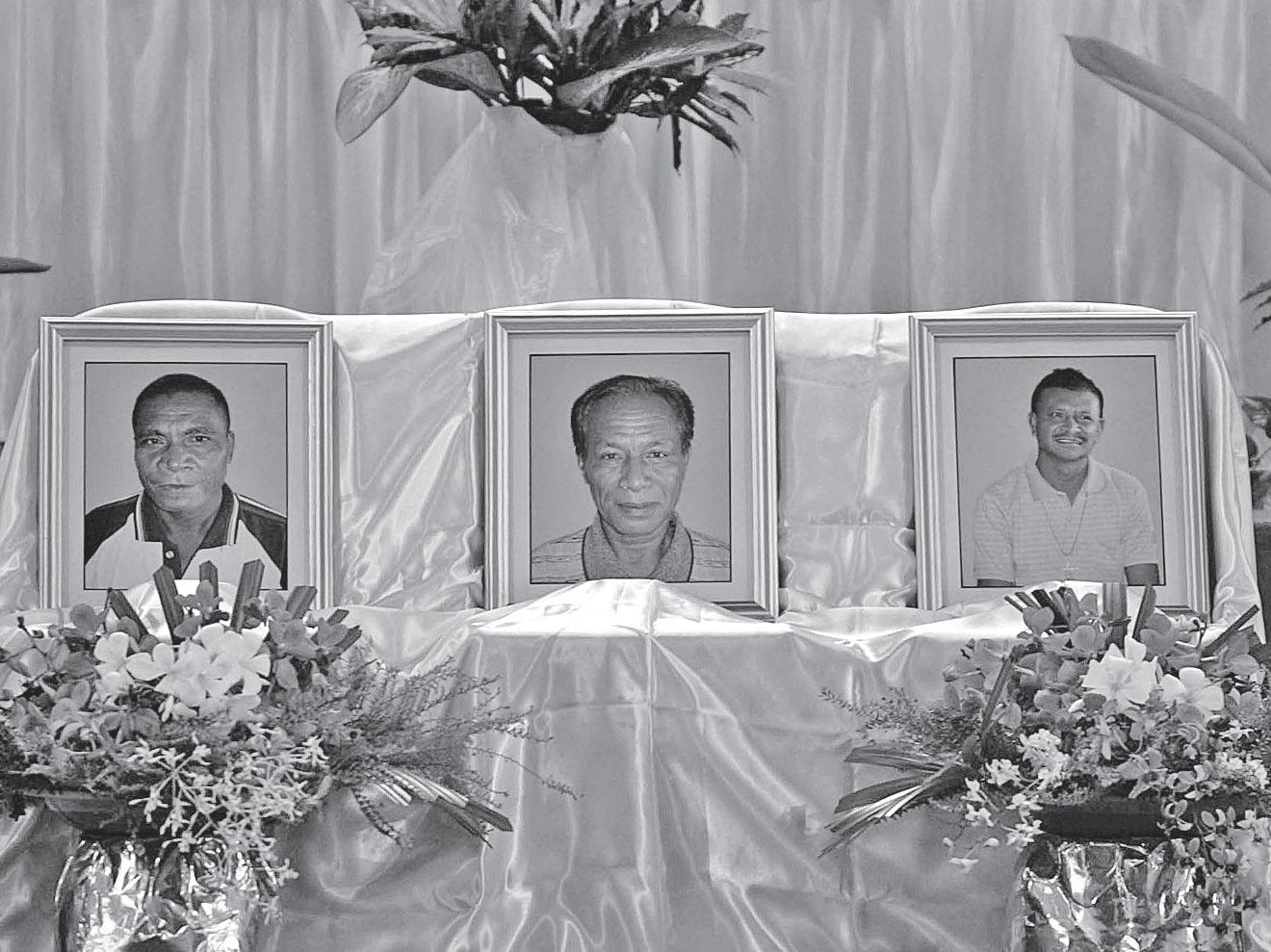
on October 5 by UCA News, an Asian Church news agency based in Thailand.
Padma Indonesia, which had provided legal and spiritual assistance for the three executed men, said the Indonesian government perpetrated crimes against humanity by carrying out the executions
Young urban missionaries
Continued from page 1
“I encourage you to maintain this missionary style in everyday life, always taking advantage of diocesan formative initiatives,” he added.
In the context of the mission, prayer meetings and Eucharistic adoration were organised in some Rome churches, as well as the Way of the Cross from the Basilica of St John Lateran to the Basilica of the Holy Cross of Jerusalem. Also organized were street activities and the installation of a “Tent of Meeting.”
Every day, a “Sports City” was opened, offering soccer and volleyball tournaments.
In addition, there were moments of celebration and testimony, such as a concert held in Piazza Navona on the night of September 30.
Thanks to the first edition of this mission, a “School of Diocesan Evangelisation” was established in Rome, open to people 18 to 35 years of age, dedicated to teaching how to pray, how to listen to the Word of God, and how to evangelise.
The mission was organised by the diocesan service for youth pastoral care of the Vicariate of Rome and the Major Roman Seminary, in collaboration with some parishes, associations and movements present in the diocese’s territory.
Single sex schooling catches on
The number of public schools in the United States experimenting with single-sex education has increased during the past decade from five to at least 241. Educators hope that it will help students learn better. The trend has been encouraged by the 2001 No Child Left Behind Act, which apparently contradicts the 1972 Title IX law banning sex discrimination in federally funded programmes,
including public schools and college sports programmes.
The American Civil Liberties Union used Title IX to shut down a plan to introduce single sex classes at a Louisiana school this fall, using the objections of a 13year-old girl. But other schools have gone ahead, encouraged by research that highlights differences between the male and female brain, and the different learning
of the three poor villagers. “The judgment against them is wrong because it was not free and honest,” the statement said.
It noted that no legal action resulted from the naming of 16 other people believed to be the masterminds of the 2000 Poso riots.
Beyond the fact that the men did not commit the crimes, the executions were illegal and unconstitutional because they occurred when the three men were exercising their constitutional right to a second appeal for clemency, the statement added.
The statement also said the
executions were carried out in an inhuman and uncivilised way and violated the 1964 presidential decree on the procedure for carrying out the death penalty.
The statement said that Rening and Fr Tumbelaka met Palu Chief District Attorney Muhammad Basri Akib on September 19, “but he refused to officially give or even show us the warrant for the executions”.
Akib also did not allow Rening to see the three Catholics, according to the statement, which also said that Rening and Fr Tumbelaka received information verbally on September 21 from Agus Setiawan of the Palu District Attorney’s Office that the district attorney refused all the last requests of the three men.
“Refusing all their last wishes is against the 1964 presidential decree on the procedure of death penalty execution,” the statement said.
Other violations, according to the statement, included the failure to hand over the bodies of the three men to their families after execution.
The statement said that as of the day of the press conference the district attorney still had not provided the three men’s families and lawyers with the official reports of the executions.
“We are preparing legal efforts via competent international institutions such as the UN High Commissioner for Human Rights and International Criminal Court,” Fr Bethan said.
The sleepwalk towards terrorism
Vatican’s UN nuncio warns against apocolyptic sleepwalking
The world seems to be “sleepwalking” down the path of nuclear weapons proliferation, increasing the risk of nuclear terrorism, said the Vatican’s representative to the United Nations.
The United Nations must foster greater international dialogue to ensure compliance with treaties restricting the proliferation of nuclear weapons and banning their testing, said Archbishop Celestino Migliore, the Vatican’s UN nuncio.
Without a firmer commitment to these treaties more states will arm themselves with nuclear weapons, increasing the possibility that such weapons will fall into terrorist hands, he said on October 5 in a speech to the UN General Assembly in New York.
The Vatican has observer status at the UN which means that it can speak at sessions but cannot vote.
The archbishop said the world is at a crossroads regarding nuclear weapons.
“One path can take us to a world in which the proliferation of nuclear weapons is restricted and reversed through trust, dialogue and negotiated agreement,” he said.
“The other path leads to a world
in which rapidly growing numbers of states feel obliged to arm themselves with nuclear weapons and the threat of nuclear terrorism grows,” he said.
“The international community seems almost to be sleepwalking down the latter path, not by conscientious choice but rather through miscalculation, sterile debate and the paralysis of multilateral mechanisms for confidence-building and conflict resolution,” he said.
The archbishop said the Vatican has repeatedly asked governments “which openly or secretly possess nuclear arms, or those planning to acquire them” to change their plans and “strive for a progressive and concerted nuclear disarmament”.
“Policies of nuclear deterrence, typical of the Cold War, can and must be replaced by concrete measures of disarmament based on dialogue and mutual negotiations,” he said.
Archbishop Migliore also asked for greater efforts to restrict the spread of small arms.
He said greater emphasis should be given to the “human dimension” of the destruction caused by these weapons, especially to children.
He said that there are 643 million small arms in the world today and these weapons “kill and maim tens of thousands, spark refugee crises, undermine the rule of law
and spawn a culture of violence and impunity”.
He added that the Vatican supports establishing “an obligatory legal framework aimed at regulating the trade of conventional weapons of any type, as well as regulating the know-how and technology for their reproduction”.
It also favours international standards for the import, export and transfer of conventional weapons, he said.
In an October 2 talk to the General Assembly, Archbishop Migliore asked for “more focused initiatives” to combat AIDS in poor countries.
“The concentration of our financial, logistic and human resources would enable the countries most affected by HIV/AIDS to put an end to this scourge and consolidate the hope that humankind will overcome the pandemic worldwide,” he said.
The archbishop also reiterated the Vatican position that “ensuring access to reproductive health” as stated in the U.N.’s 2005 World Summit Outcome Document means “reducing maternal mortality”.
In the past, when the phrase on reproductive health has appeared in UN documents, it has been interpreted by many people as meaning support for access to abortion.


The World
Dialogue on track says Vatican
Is interreligious dialogue slowing? Vatican emphatically says no
■ By Carol GlatzThe president of the Pontifical Council for Interreligious Dialogue said the Vatican’s commitment to interreligious dialogue not only continues, but “it is even stepping up”.
For example, the council is promoting a November meeting in Assisi, Italy, that will bring nearly 100 young people from a variety of religious backgrounds together to talk about peace in education, said French Cardinal Paul Poupard, who also heads the Pontifical Council for Culture.
In November, he is scheduled to travel to Jakarta, Indonesia, for an interreligious meeting.
He is also scheduled to go to India to talk with religious representatives and to attend a gathering of people involved in Catholic cultural centres there.
The centres, run by local parishes all over the world, regularly hold cultural initiatives about a new book, film or social problem.
The events give the Church the opportunity to talk about values that are important to Christianity and draw people from every faith or no faith at all.
The cardinal said in an earlier interview with CNS that these cultural centres have the most impact in countries that are predominantly
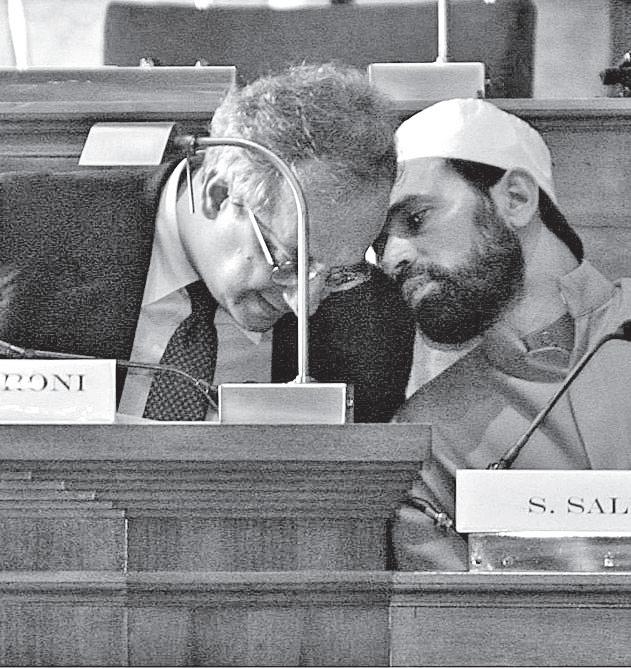
Muslim, Hindu or Buddhist. And in mid-October the council’s secretary, Archbishop Pier Luigi Celata, was to meet with the head of Turkey’s directorate of religious affairs in Istanbul and address some 400 Muslim representatives.
Cardinal Poupard told the Italian daily Corriere della Sera the occasion “will be a unique opportunity to clear the air”.
The controversy sparked by Pope Benedict XVI’s September address in Regensberg, Germany, triggered
condemnation and violence in recent weeks against Christians and their places of worship in several Muslim-majority countries.
Cardinal Poupard insist speculation that interreligious dialogue had been put on the back burner under the new Pope is misguided.
He denounced any assumption that the Pope intends to weaken the interreligious council as a “complete lie.”
Cardinal Poupard said despite their continued efforts, Vatican
officials have had dialogue partners from other faiths “come to us convinced that the council (for interreligious dialogue) doesn’t exist anymore or is about to be dismantled”.
Those misconceptions grew from events starting in mid-February when the presidency of the Vatican’s interreligious dialogue council was left vacant after the Pope appointed its head, Archbishop Michael Fitzgerald, as Papal ambassador to Egypt and the Vatican’s representative to the 22-member League of Arab States.
In mid-March, the Pope merged the leadership of the interreligious dialogue and culture councils.
Although the two councils have one president, the councils “remain intact and autonomous,” with neither being subordinate to the other, Cardinal Poupard said in an October 5 interview with Corriere della Sera.
In no way does the Pope wish to diminish the importance of working with peoples of other religious faiths, he said.
He added that “it is very grave” that speculation to the contrary continues to resurface in spite of every correction.
At the Vatican, Cardinal Poupard routinely receives ambassadors to discuss interreligious relations.
He told CNS that he recently met with Buddhist monks from China, Islamic representatives from Iraq and Sikhs from India.
He said the representatives he meets with are happy with the Vatican’s efforts at dialogue and exchange, and they are all working “in a harmonious climate”. CNS
Vatican City of the dead
The partly uncovered skeleton of a small child lies in the ground where it has been buried for some 2000 years. Next to the right hand is an egg, thought to be a symbol of rebirth.
The infant’s burial place, touchingly simple, is one of more than 250 tombs discovered beneath Vatican City and now on display to visitors for the first time.
The necropolis - literally a “city of the dead” - was unearthed in 2003 when the Vatican began digging foundations for a parking lot. The area containing the tombs was carefully excavated, with results that surprised the experts.
“We discovered what might be called a small funerary Pompeii,” said Giandomenico Spinola, who oversaw the archaeological work for the Vatican Museums.
Spinola explained to reporters on October 9 that many of the tombs were preserved in a mudslide that occurred on the Vatican hill in ancient times. When the tombs were excavated, they still contained the decorations, ritual furnishings, mosaics and frescoes from 2000 years ago, he said.
“This is the type of complex that is usually lost over time. It contains the tombs of rich families, middle-class families and even some slaves,” he said. Those buried at the site included noblemen, scribes and a horse trainer who worked the chariot races. CNS
Pope Benedict still hosing down flames of Regensburg speech
Pope adds explanatory note to controversial remarks on Islam
Pope Benedict XVI has added an explanatory note to his controversial remarks on Islam, saying the text provoked misinterpretation and “understandable indignation” among Muslims.
The explanation appeared on October 9 in a footnote in the Vatican’s online version of the
the world in brief
speech on faith and reason given by the Pope in Regensburg, Germany, in mid-September. In his speech, the Pope spoke briefly about religion and violence, quoting the 14thcentury Byzantine Emperor Manuel II Paleologus, who said: “Show me just what Mohammed brought that was new, and there you will find things only evil and inhuman, such as his command to spread by the sword the faith he preached.”
In the new footnote, the Pope re-emphasised a point he has made several times since delivering the
No Roe Vs Wade appeal
The Supreme Court declined to hear the appeal of Sandra Cano, the Georgia woman who hoped the court would reverse her 1973 victory in one of two decisions that legalised abortion. Cano was the “Mary Doe” in the court’s Doe v Bolton, the companion case to the better known Roe v Wade decision. Roe threw out most state restrictions on abortion, but the Doe decision permitted abortions through all nine months of pregnancy. Without comment, the court rejected Cano’s appeal of the 11th US Circuit Court of Appeals ruling in January that said federal district and appeals courts lacked authority to overturn the decision in Doe or in Roe. In petitioning the court, Cano’s attorneys
speech - that he did not share the emperor’s views on Islam.
“In the Muslim world, this quotation has unfortunately been taken as an expression of my personal position, thus arousing understandable indignation,” the note said.
“I hope that the reader of my text can see immediately that this sentence does not express my personal view of the Quran, for which I have the respect due to the holy book of a great religion,” the Pope said.
“In quoting the text of the Emperor Manuel II, I intended
argued that although medical science and technology have advanced, by refusing to reconsider the validity of the Roe and Doe cases, the Supreme Court has “frozen abortion law based on obsolete 1973 assumptions and prevented the normal regulation of the practice of medicine”.
Nuclear concern
South Korean religious leaders expressed deep concern over North Korea’s nuclear test but said economic and military sanctions would not be a good response. Father Paul Han Jung-kwan, executive secretary of the Committee for the Reconciliation of Korean People of the Catholic Bishops’ Conference of Korea, called the October 9 nuclear test “an act that destroys world peace and order and is against the Gospel”.
solely to draw out the essential relationship between faith and reason. On this point I am in agreement with Manuel II, but without endorsing his polemic,” he said.
Part of the text of the papal speech has been retranslated in English and other languages. Originally the text opened the quotation by noting that Emperor Manual spoke “somewhat brusquely” about Islam. That was changed to “with a startling brusqueness, a brusqueness that we find unacceptable.”
The Pope has expressed regret
In an October 10 interview with UCA News, an Asian church news agency based in Thailand, Father Han said sentiment against North Korea may spread within the Church. He said he believes the Church in South Korea will face difficulties in its humanitarian work with North Koreans. He said he expects North Koreans to become more isolated from the international community and suffer from a lack of food and basic goods. For this reason, he added, the South Korean Church needs to establish a long-term plan to help its northern neighbours.
Fatherhood more than biology
A paternity suit that went all the way to the US Supreme Court shows that most
several times that his words had caused Muslims to take offence, and he convened Muslim representatives and diplomats to offer a personal explanation.
While many Muslim leaders have said they consider the issue closed, other groups have insisted that the Pope offer a full apology.
Vatican officials have pointed out that in his original speech the Pope had been arguing in favour of religious values in modern cultures - a position which they say should be welcomed by Muslims. CNS
courts regard men as legal fathers even when there is scientific evidence to the contrary. Georgia litigant Carnell Smith broke up with his “girlfriend” but financially supported the child he regarded as their daughter. After he remarried and had a baby to support at home, he took a DNA test that showed with 99.99 per cent certainty that the girl was not his daughter. Other tests confirmed this. After the Supreme Court rejected his petition the Georgia legislature changed state law and severed his legal obligation to the girl. Smith now heads Citizens Against Paternity Fraud and sells test kits online.
“Biology is not everything. If it were, you wouldn’t have this thing called adoption,” said Wade Horn, assistant secretary for children and families at the US Department of Health and Human Services.
Lost youth a national tragedy: Cardinal Pell
Continued from page 1
members of “Generation Y,” aged between 13 and 29, are “moving away from their Christian origins,” with some reducing their attendance at worship and others stopping altogether.
He noted that at the age of 29, 25 per cent of Australians who were once members of a Christian church have become ex-members, with the figure for Catholics higher still at 29 per cent, according to a recent research project.
“Too many young Catholics have been led by the pressures of contemporary propaganda, whatever might be said about the inadequacies of family life and Catholic religious education, so that their religious confusion is worse than that of all other young Australian Christians,” Cardinal Pell said.
The Cardinal said it is a tragedy that many young Catholics feel they are free to pick and choose their beliefs, and that many believe morality is relative.
“A Christian acknowledges her failure to love and requests forgiveness,” he said. “A Christian does not define his sins out of existence and is not free to reject the central Christian mysteries after a little mature consideration. A Christian is someone who accepts Christ’s answer.”
However today there is a trend away from such visions of the Catholic faith.
“To stem the exodus we need to hang on to the children of Catholic parents, but to reverse the trend we need to inspire many to conversion, to a change of life, to a new acceptance of Christ and of the Church,” he said.
Cardinal Pell also expressed
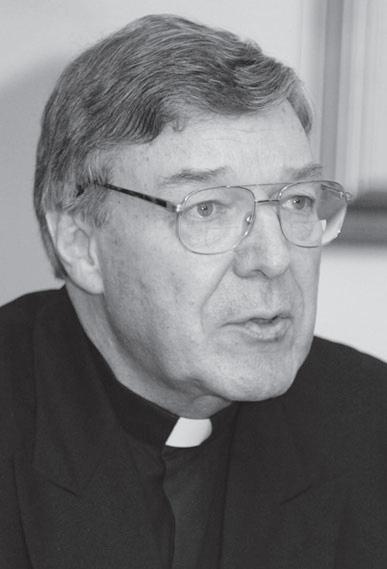
concern that with 43 per cent of Catholics being educated in state schools, the Catholic education system has begun to cater primarily to the great Australian middle class, and that it is leaving poorer families, including Catholic families, behind.
“Catholic schools are not educating most of our poor, especially at the primary level,” he said. “Seventytwo per cent of Catholic students from families with lowest third of family income attend Government infant/primary schools and only 19 per cent attend Catholic schools.
“At secondary level 63 per cent of the ‘poorest’ Catholics attend Government secondary schools and 22 per cent attend Catholic secondary schools. Predominantly our schools now cater for the huge Australian middle class, which they helped create.”
Cardinal Pell described this as a significant challenge. He said it is a major reason for holding down increases in school fees, and also highlights the need to nurture
Catholic catechists working in State schools.
Rather than seeing themselves as educators servicing the great Australian middle class, Cardinal Pell said Catholic schoolteachers should see their work as “profoundly counter-cultural”.
For Catholics, he said, the central concern is the presentation of the person of Jesus Christ. “We espouse crucifixion Christianity which leads to the resurrection and believe that everyone stands under the four last things of death and judgement, heaven and hell. Catholicism calls to faith and reason as well as love and hope,” he said.
The Cardinal ended his talk with 10 important questions which he believes Catholic educators should immediately begin to consider:
1. Do Catholic schools retain today a capacity to strengthen the faith and improve the morals of their students, as they did in the past?
2. Are Catholic truths presented to your students sequentially and comprehensively over the 13 years of schooling? Do students know what are the four or five fundamental truths of our faith? What is the place of student text books in religious education?
3. What strategies would overturn the assumption that all morality is relative? How can the truths about life, marriage, family and social justice be defended?
4. What strategies might be adopted to strengthen the Christian faith and perhaps make converts among the 23 per cent of nonCatholic students in our schools?
5. What strategies would make Catholic schools more accessible to lower income families? Should our
“elite” colleges offer more scholarships to the disadvantaged?
6. Is it a concern that few Catholic schools are listed among the best academic schools?
7. Is there sufficient diversity among Catholic schools?
8. Should more be done for the
religious education of Catholics in state schools?
9. What must we do to prepare the next generation of leaders for truly Catholic schools?
10. How can we attract committed Catholic school graduates into the teaching profession?
Parents, teachers must lead way for kids’ faith
■ By Sylvia DefendiDim statistics and tough challenges emerged as Cardinal George Pell addressed 585 senior educators from across the nation at this year’s National Catholic Educators Conference.
Acting director for Western Australia’s Catholic Education Office, Mary Retel agreed that a significant challenge was to have teachers living the word of God.
“One of the highlights of the conference was that we realised and discussed the challenges facing Catholic education in Australia at present,” she said.
Mrs Retel said that identifying challenges, such as the growing secularisation of society and the need to further promote the voice of Catholic education throughout the wider education sector, proved to be very beneficial.
A growing concern that was identified as a result of the conference was the need to further engage families and parish communities, Mrs Retel said.
“Parents are a child’s first educator and parishes are also intrinsically linked by way of proximity but also through catechesis pro-
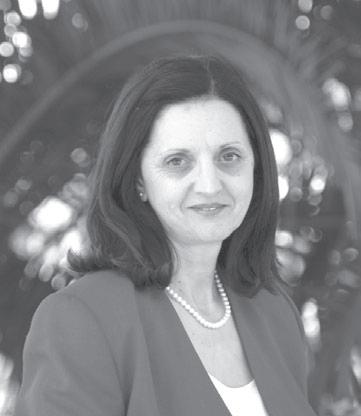
grams,” Mrs Retel said.
Of Cardinal Pell’s dismal figures, which stated that members of ‘Generation Y’ were ‘moving away from the faith,’ Mrs Retel commented that schools must also be realistic and realise that they can only do so much.
“If we could get schools working with parish communities and individual families, on a much larger scale, the world would be our oyster,” she said. While Mrs Retel admitted that there will always be room for improvement within the Catholic education sector, she also stated that “being a part of Catholic education is a significant privilege that comes
Bringing together East and West at school
In an education first for Western Australia, the Catholic Education Office of WA in collaboration with the Australian Islamic College has developed a teacher immersion program that is providing participants with an invaluable cross cultural insight into teaching WA children.
Under the program, La Salle College in Viveash, Lumen Christi College in Martin and Chisholm College in Bedford will host a total of 15 members of staff from the Australian Islamic College in Kewdale during Terms 3 and 4.
Over five days, the staff members of the Australian Islamic College are provided with practical strategies for teaching and working in WA schools. Debra Sayce, the Assistant Director of Religious Education and Faith Formation at the Catholic Education Office, said the purpose of the program was to provide the participants with a broader understanding of the WA education system and the operation of Catholic schools as places that help develop and foster a particular faith tradition.
Across the three Colleges, the program has been received very positively as those involved engage in what has developed into a twoway learning opportunity.
At Lumen Christi, deputy principal Barbara Bolding said the experience provided a great exchange of materials, methodology and insight into the issues that face all schools.
“The Islamic College’s Nasreen Ahmed (deputy principal) and
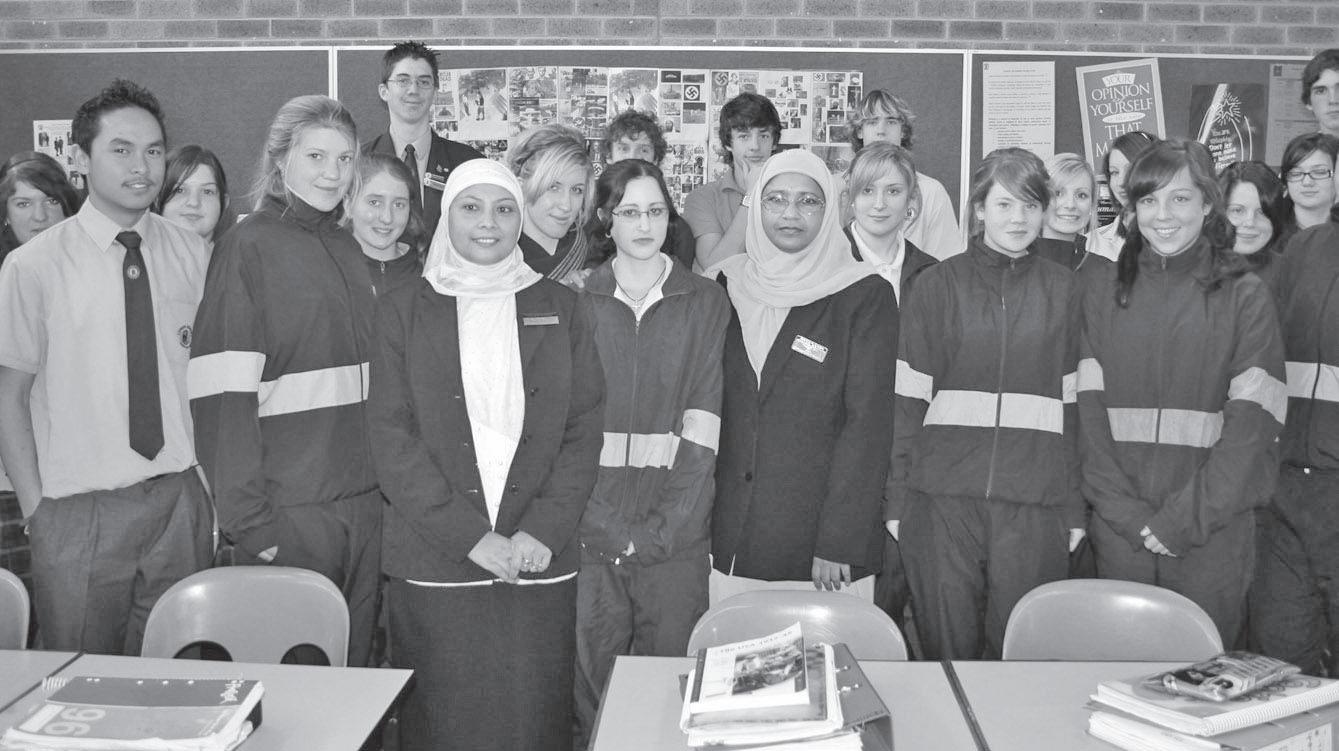
Khurshida Islam (HOD – Science) were more than willing to share their cultural heritage and their own faith beliefs with, not only the RE, but the history classes as well,” she said.
“The resulting impact on the students went a long way to breaking down barriers and demystifying that which had previously been unknown.”
Providing both the students and staff with a better understanding of the local Islamic community, she said the program also provided the Islamic College teachers with an
opportunity to experience the richness and diversity that exists within the Catholic system.
“The end of the five days brought with it offers of help and further contact and we all hope this is just the beginning of new links and associations that can be developed between the schools,” she added.
The reaction was similarly positive at La Salle, with assistant principal Michael Pepper describing the experience as extremely worthwhile. Working with La Salle’s Learning Area Coordinators of Science, Richard Williams, and
Mathematics, John Angove, the Islamic College’s Dr Rob Hartland and Abdul Minhaj had the opportunity to visit a number of classes and year levels.
Commenting on the experience, both men were very complementary of the college staff and students who they described as welcoming, polite and motivated to learn.
“The variety of opportunities available to the students is very impressive, particularly the electronics and hospitality electives,” Dr Hartland said. “We tend not to have electives as the focus is more
on the core academic subjects. “It was also very beneficial for me to see the different teaching styles and approaches that different teachers use and to compare this to how we do things at our College.”
As a maths specialist, Mr Minhaj said he was interested in the college’s approach towards modelling in mathematics and the level of work being generated by the students in the engineering elective.
“Some of the student designs of machine parts and urban planning that I saw were equivalent to that being produced by second and third year university students,” Mr Minhaj said
“This course is an excellent foundation for students looking to study aspects of engineering at university.
“I will propose that our college investigate the possibility of introducing this subject.
“I will also request of both schools that immersion programs such as this continue to be offered in the future and that teachers from the host colleges have the opportunity to visit the Islamic College to see how we operate.”
Echoing this sentiment, Mr Pepper said the program also provided the Islamic College staff with a means of networking and professional development that is not readily available to them given their autonomous structure.
“At the end of the day, it is the students who will benefit the most from programs such as this,” Mr Pepper said.
Church can help save Aboriginal women, children
■ By Anthony BarichThe Catholic Church has a crucial role to play in arresting sexual abuse of children in remote Aboriginal communities that has been happening since before Europeans colonised Australia, says Bishop Christopher Saunders.
Bishop Saunders, Chairman of the Australian Catholic Social Justice Council, has over 30 years’ experience in ministering to remote Australia, having been ordained priest of Broome in 1976, and says recent startling stories of sexual abuse of minors has been a long time in the making, and will take “some time to unmake”.
But through what he sees as the Church’s key strength of spiritual direction, it can help Aboriginal communities to help themselves.
Bishop Saunders made the comments at Notre Dame’s Fremantle campus on Tuesday, after reflecting on his experiences at the “Dreaming from the Heart” conference in Alice Springs to commemorate the 20th anniversary of Pope John Paul II’s
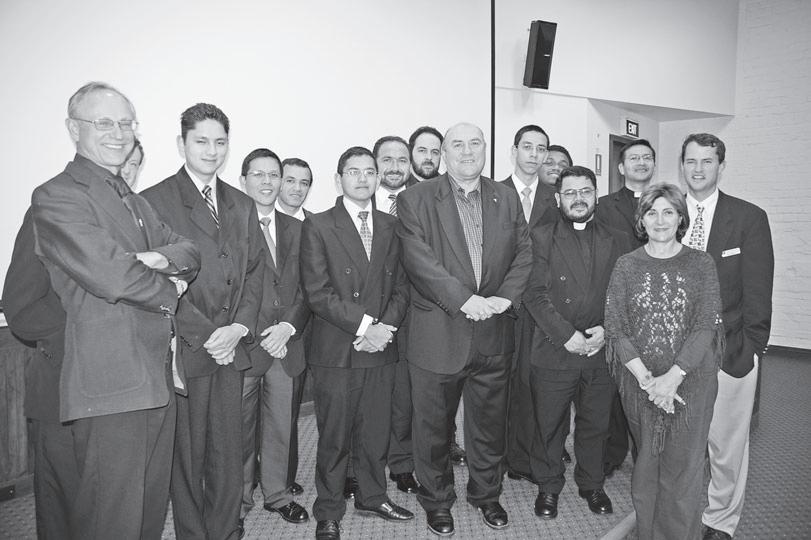
address to Aboriginal people and Torres Strait Islanders in 1986.
Bishop Saunders said the Church assists through the health system to foster women’s groups to help them to band together to protect themselves and, therein, to protect their younger girls from issues of abuse.
“Not only does the Church have a role in there, but the Church’s role is essential,’’ Bishop Saunders said.
“Our spiritual support of those women’s groups and youth groups we started up to combat some of those issues is the strength that the Church brings.
“Best of all is for us to...help the people to solve their problems, so it’s not so much Church-led but Church-sponsored and then Church-supported, so that then the Aboriginals themselves can stand
up and say ‘this is not the behaviour we’re looking for’.”
Though he conceded there were instances of such abuse before European settlement, he said the horrific incidents recently revealed in media across Austraia occuring in remote communities was not part of the Aboriginal culture.
“The sexual molestation of children is an aberration of culture,” Bishop Saunders said.
“It’s not inherent in every Aboriginal culture. It was frowned upon in tribal days to do that, although...even before (European settlement) there were some practices that were indicative of a society in which there was a class of people that were more powerful than others. That did happen, but the issues that are being spoken about today: the assumed rights by elders to control lives and bodies of young Aboriginal girls is an aberration of culture, and is by no means a part of the (Aboriginal) culture as we understand it.
“A lot of those things have happened because the culture has become fractured. There are very
few places today where Aboriginal culture is entirely intact.
“If you take a remote Aboriginal community (a specific one Bishop Saunders had in mind) where there has been up to 30 years of alcohol abuse, which is now being compounded by use of drugs - marijuana and they’re moving into other things - if you look at the gradual breaking down of that society, it’s very difficult in that fractured environment to come up with a solution to protect those children.
“But it is possible, and it has been done in some of the communities where elders have got together deliberately to protect children rather than leave it to the police to do it. The law and order response to what is a social problem is inadequate. I’m not saying you don’t need police or we shouldn’t have police or that they shouldn’t have any rights out there, (because) I know some of the missionaries are happy to have police out there.
“But if you’ve got a social problem, you need a social response. Policemen and police women are not social workers - they’re not trained that way.”
Keep dreaming, Pope Benedict tells faithful elders
■ By Paul GrayPope Benedict’s message to a commemorative meeting of indigenous Australians has emphasised the importance of avoiding alcoholism and drug abuse in favour of the fostering of God’s spirit in Aboriginal communities.
The National Aboriginal and Torres Strait Islander Catholic Council held an assembly in Alice Springs last weekend to commemorate the 20th anniversary of Pope John Paul II’s visit to central
Australia in 1986. Retired Cardinal Edward Cassidy read a message from Pope Benedict to the assembly, in which the Pope highlighted the importance of “purpose” rather than simple “recollection”.
Addressing the Elders of Aboriginal communities, the Pope said much rests on their example.
He urged them to be faithful to their traditions such as songs, stories, paintings and dances, “and most especially through a renewed expression of their deep awareness of God, made possible through the Good News of Jesus Christ”.
The Pope directly tackled the problems of drug abuse in Aboriginal communities, in words addressed to young people.
“Don’t allow your ‘dreaming’ to be undermined by the shallow call of those who might lure you into the misuse of alcohol and drugs, as promises of happiness,” he said.
“Such promises are false, and lead only to a circle of misery and entrapment.
“Instead, I exhort you to foster the encounter with the mystery of God’s spirit active in you and in creation, beckoning you to a life of
St Matthew’s gets a new blessing
Eighty-eight years after it was founded by the Sisters of Our Lady of the Missions, St Matthew’s Primary School in Narrogin has recently celebrated the blessing and opening of its Stage five capital development program.
Providing the staff and students with new and refurbished facilities that complement the original buildings, the program was blessed by Bishop Gerard Holohan, Bishop of Bunbury, and officially opened by Hon. Judi Moylan, Federal Member for Pearce.
In his address, Bishop Holohan congratulated Principal Colleen McGinley for what he described as her “dynamic leadership” that helped ensure that the school continued to meet the needs of the community.
Praying the blessing over the crucifixes, he reminded the children that they were a sign of Jesus’ presence in their everyday lives.
“The crucifixes remind us that Jesus is here, waiting for us to turn to him with any problem that we may have,” he added.
Recognising the past
Paying tribute to the school’s founding Sisters, Ron Dullard, the
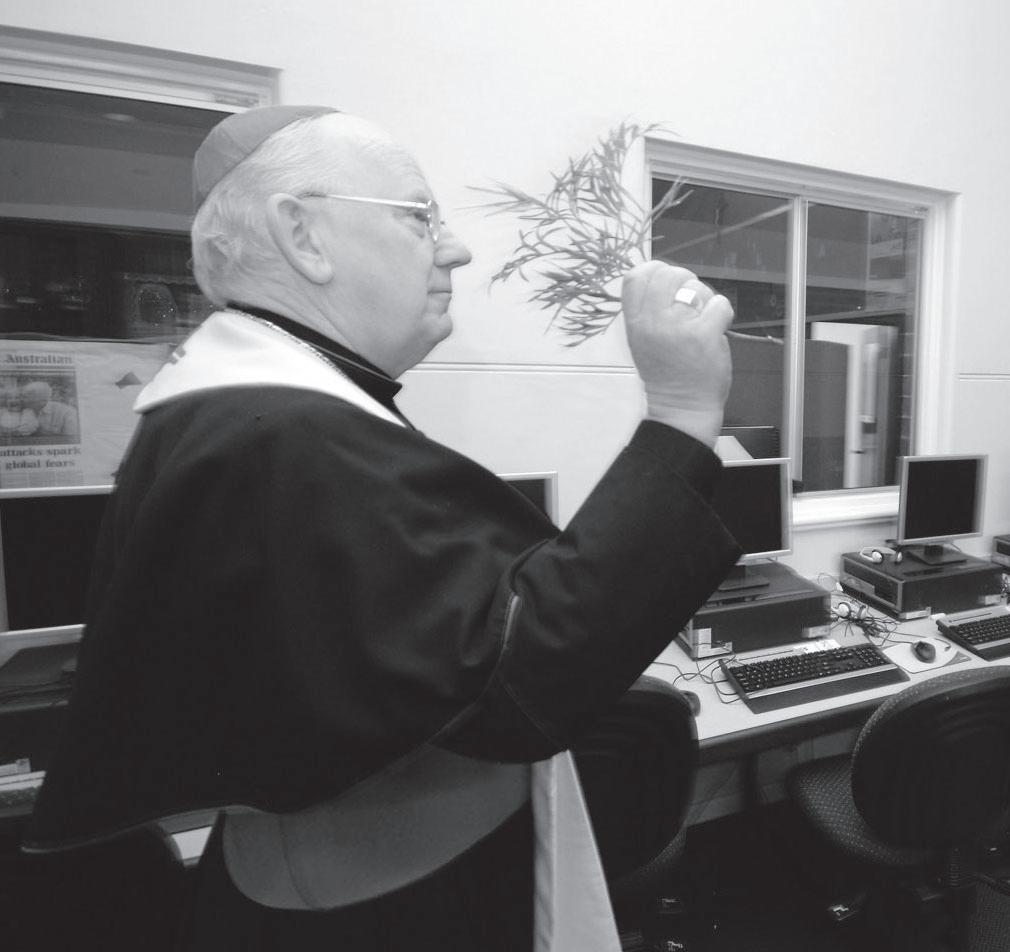
It’s official: Bishop Holohan blesses St Matthew’s new facilities. Photo:
Director of Catholic Education in Western Australia, said it was important to recognise their contribution and foundations on which the school continues to grow.
Turning his attention to the large group of parents in attendance, Mr Dullard said their active
participation in their children’s education was helping to secure a positive future for them all.
In her address of thanks, Colleen McGinley said the blessing and opening ceremony was an excellent opportunity for the St Matthew’s community to celebrate.
purpose, service satisfaction and joy.”
Addressing the wider Australian community, Pope Benedict said that commitment to truth “opens the way to lasting reconciliation through the healing process of asking for forgiveness and granting forgiveness”.
The Pope said he again encouraged all Australians to address “with compassion and determination the deep underlying causes of the plight which still afflicts so many Aboriginal citizens”.
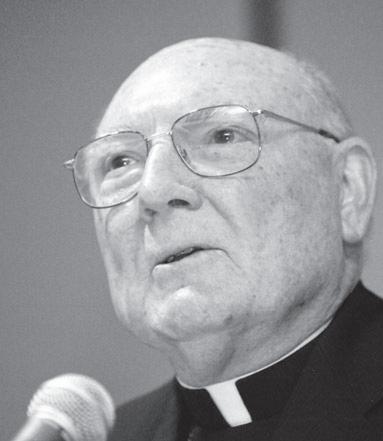
the world in brief US drug control spreads its gospel on YouTube
The United States Government on YouTube? It’s true. Last week the White House Office of National Drug Control Policy (ONDCP) became the first government agency to post videos on the popular website where amateurs post clips on everything from Third World poverty to Hamlet acted by cats. A bunch of 30-second videos on the theme, “Above the Influence”, promote the idea that drug use robs a young person of his identity, maturity and makes him do things he’s sorry for in the morning.
The ONDCP hopes “this ground-breaking effort will enable us to reach more Americans online and to help combat some of the misinformation that has spread across the internet regarding drugs.” You can watch the videos on YouTube.
Work patterns rob kids of family time
Children are missing out on crucial time reading, playing and eating with their parents, according to British research that shows nine out of 10 families suffer from unsocial working hours. Eight out of 10 working fathers and more than half of all working mothers are forced to work outside the hours of 8am to 7pm, Monday to Friday, says the report from the National Centre for Social Research. These mothers are losing eight hours a week with their children and fathers more than 15 hours, the study of 11,000 people found, and few people ever make up the time lost.
Only 17 per cent of families have a parent working the normal nine-to-five week. Three out of four families have a parent who works weekends, but the majority of mothers (78 per cent) are unhappy about weekend work. “We know that family time together and activities such as eating, reading and playing together are fundamental for a child’s healthy development,” said the Relationships Foundation, a partner in the research. It said children are “clearly suffering” and this could affect “the sustainability of our society” in the long run.
A ray of sunshine in a world of gloom
Family values radiate from this entertaining comedy about a dysfunctional family in search of success.
■ By Justin MyersLittle Miss Sunshine
Starring Alan Arkin, Abigail Breslin, Steve Carell, Toni Collette, Paul Dano, Greg Kinnear
The Hoover family takes the term “dysfunction” to a superlatively dismal level. The poor Hoovers are featured in the often hilarious, truly heart-warming film Little Miss Sunshine. The father, Richard (Greg Kinnear) leads the family and struggles as a motivational speaker. This is such a delightfully paradoxical concept that I am surprised such a character has never emerged on screen before. Richard finds himself mired in a frustrating Catch-22. How can he motivate people for success when he has not been successful as a motivator? Richard’s father (Alan Arkin) has recently been expelled from his retirement home for snorting heroin. Now he delivers an incessant assault of bad advice to his grandchildren, particularly teenager Dwayne (Paul Dano). Through his fervent reading of Nietzsche, Dwayne has decided that he will never speak and that he hates everyone. Olive (Abigail Breslin), the cute and sensitive seven-yearold, is likely the single well-adjusted member of the family, but her dreams of one day becoming Miss America are probably less than realistic. Uncle Frank (Steve Carell) has come to live with the family because he has recently attempted suicide, mainly over his unrequited love for another man. Carell, who has gained significant popularity playing a frivolous dolt with a twinkle in his eye, shows that he can be equally funny playing a depressed intellectual. Sheryl (Toni Collette), the harried mother, much like Ma Joad from The Grapes of Wrath, is desperately trying to keep the family together and functioning.
Thankfully, the Great Depression is long over and unlike the Joads, who migrated to California out of sheer survival, the Hoovers all pile into their rickety VW bus and head for the sunshine state so little Olive can compete in a child beauty pageant. First- time directors Jonathan Dayton and Valerie Faris turn in a solid B+ effort in Little Miss Sunshine. They have found just the right pacing for their sleek comedy, which does not drag for a second. Rookie screenwriter Michael Arndt efficiently blends laughs with gravity in such a way that I already look forward to his second offering. Arndt presents no caricatures. Every member of the Hoover family is a fully realised, profound character.
Little Miss Sunshine examines modern society’s preoccupation with success. “There are only two kinds of people in the world, ” Richard repeats throughout the movie, “winners and losers. And every one of us has what it takes to be a winner.” Of course, reality does not unfold in such black-and-white terms. Everyone has both strengths and deficiencies. No one can win at everything all the time. A
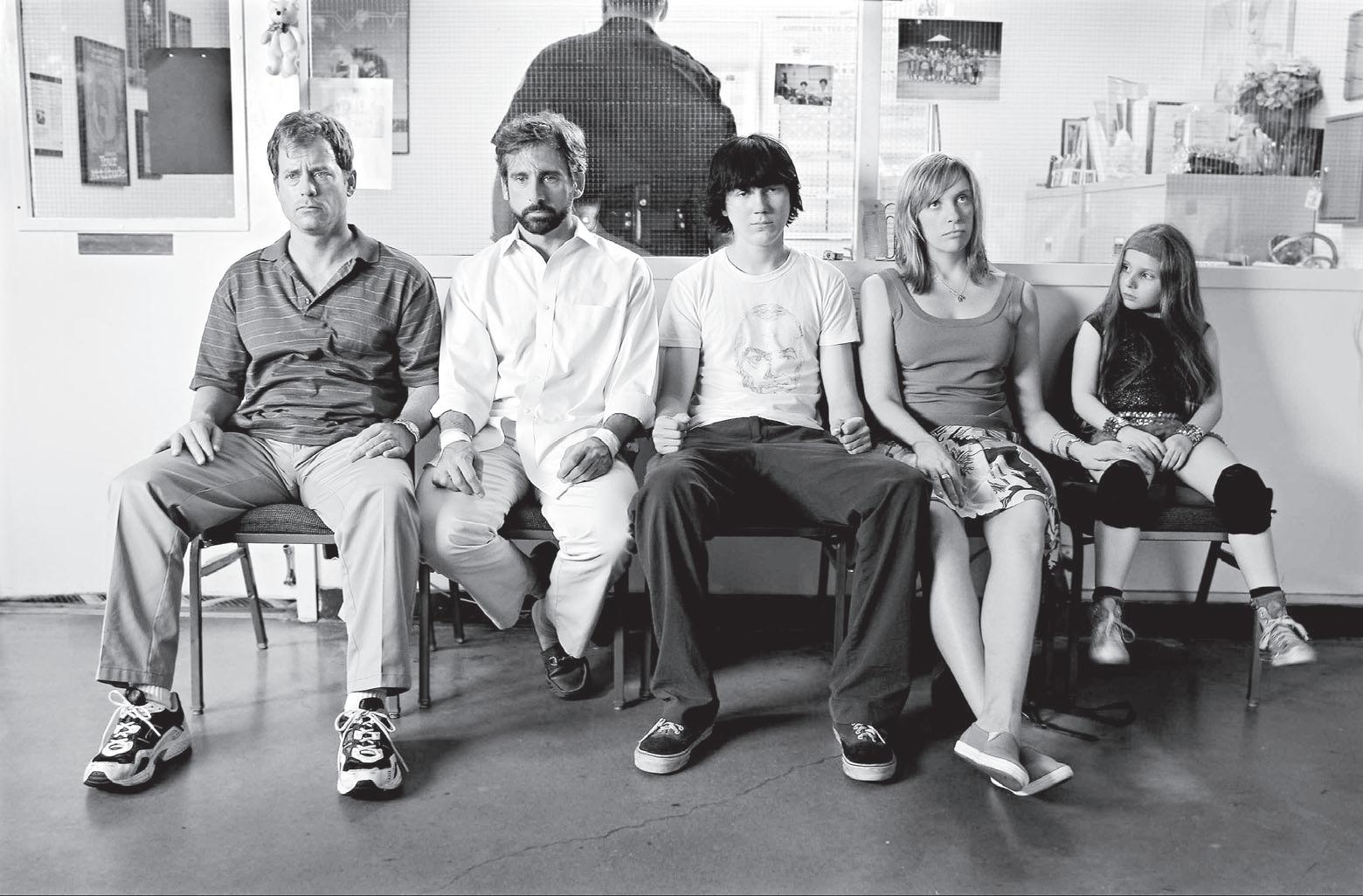
child beauty pageant is a fitting subject for an exploration of this theme, but just about any type of competition would do. If losing is unacceptable, but there is only one winner amongst dozens of contestants then... well, you do the math. Each individual of the Hoover family has failed in a significant aspect of his or her life, but that’s okay.
They are at least winners in that, despite their severe problems, the Hoovers truly love one another. They aggravate and berate each other bitterly, but when one of them sinks down far enough, another knows how to pull him back up. This develops delicately and effectively as the film progresses. The familial care emanates right through the dysfunction. The regularly ill-tempered Grandpa is buying pornographic magazines, but is all the while preoccupied with his son’s important business call. When he reads in his son’s face that things went badly, he encourages him without prying. Many films, after establishing a character as an old curmudgeon, grasp for laughs by letting him grow meaner in each scene. This film’s treatment is more satisfying because it rings closer to the truth.
At one point, Dwayne knows that Mum needs a hug from her young daughter, and he discreetly effects it. At another, Olive understands that a gentle hand on her brother’s shoulder, without any words, will snap him out of his temporary tirade. Later, Olive’s father and brother simultaneously but independently realise what course of action would be least harmful to her. This kind of perception, unity, and love embodies a success ultimately more substantial than any for which they strive individually.
Little Miss Sunshine is not without flaws. A couple of times the characters engage in
actions no real people ever would. This clunkily, though only briefly, pushes the movie into the realm of slapstick, a place it does not belong. Furthermore, in an early scene, the angst-ridden Dwayne sports a T-shirt which reads “Jesus was...” the bottom of which is revealed several scenes later to read “... wrong. ” This will understandably offend some, though it serves as more of a caveat against reading too much Nietzsche at too young an age than as a subversive nosethumbing at Christianity. Fifteen-year-old Dwayne is frustrated and confused about almost everything. He does get a theological comeuppance, though all this may play out a little too subtly for some viewers. The overall merit of the picture, however, outweighs the few blemishes. Some critics have predicted
of the
These aspirations may be too high as its buzz is already starting to fade. This type of film generally does not receive many prizes because the award groups tend to honour mediocre drama over good comedy. Since the Golden Globes have a separate category for comedy, it may see a nomination there, but it is still quite a long shot for any critics’ awards or an Oscar nomination. Well, not all movies can be winners, but that’s okay.
The rating given this movie by Catholic News Service was L - limited adult audience, films whose problematic content many adults would find troubling.
Justin Myers is a film reviewer and teacher of Latin and Greek in the Washington DC area.
Our classifications: the bottom line
The Record’s movie reviews come from the Film Office of the US Conference of Catholic Bishops.
These reviews, and any other reviews which appear in The Record, do not purport to be the last word on films, videos and DVDs. The ratings focus upon family suitability rather than artistic or entertainment value. Parents (and grandparents and other guardians) must make up their own minds on what is appropriate for their family. The ratings used by The Record are:
A-I: for general patronage
A-II: for adults and adolescents
A-III: for adults
A-IV: adults, with reservations (an A-IV classification denotes problematic films that, while not morally offensive in themselves, require caution and some analysis and explanation as a safeguard against wrong interpretations and false conclusions)
L: limited adult audience, films whose problematic content many adults would find troubling. L supplements the A-IV classification
O: morally offensive
BUILDING TRADES
BRICK REPOINTING
Phone Nigel 9242 2952.
PERROTT PAINTING PTY LTD
For all your residential, commercial painting requirements. Phone Tom Perrott 9444 1200.
PICASSO PAINTING
Top service. Phone 0419 915 836, fax 9345 0505.
ACCOMMODATION
FAMILY/GROUP ACCOMMODATION
Luxury f/f beach house complex Perth. www.guadalupehill.com. 0400 292 100.
DENMARK
Holiday House 3bdr x 2bath, sleeps up to 8. BOOK
NOW. Ph: Maria 0412 083 377.
Classifieds
Classified ads: $3.30 per line incl.
ADVERTISEMENTS
FURNITURE REMOVAL
ALL AREAS
Mike Murphy 0416 226 434.
RELIGIOUS PRODUCTS
CATHOLICS CORNER
Retailer of Catholic products specialising in gifts, cards and apparel for baptism, communion and confirmation. Ph: 9456 1777. Shop 12, 64-66 Bannister Road, Canning Vale. Open Mon-Sat.
SITUATIONS VACANT
CARETAKER
St Anne’s Bindoon. Free accom. Suit retired man. 9571 1839.
PRAYER
PRAYER TO ST JUDE
Unfailing prayer to St Jude. Blessed be God in His Angels and Saints. “O holy Saint Jude, apostle and martyr, great in virtues and rich in miracles, near kinsman of Jesus Christ, faithful intercessor of all who invoke your special patronage in time of needs. To you I have recourse from the depth of my heart & humbly beg to whom God has given such a great power to come to my assistance. Help me in my present urgent petition (make your request). In return I promise to make your name known and cause you to be invoked (say 3 Our Father, 3 Hail Mary and 3 The Gloria). Saint Jude pray for me and all who invoke your aid humbly in need of your intercession, Amen.” N.F. This novena must be said on 9 consecutive days. Thank you for answering my prayers. Rose.
PRAYER
PRAYER TO THE HOLY SPIRIT
With heartfelt thanks and deepest gratitude for answered prayers 4 times over. With God all things are possible. “Holy Spirit you who makes me see everything and shows me the way to reach my ideas, you who give me the divine gift to forgive and forget the wrong that is done to me and you who are in all instances of my life with me, I, in this short dialogue want to thank you for everything and affirm once more that I never want to be separated from you, no matter how great the material desire may be. I want to be with you and my loved ones in your perpetual glory (mention your request here). Thank you, Holy Spirit for your love towards me and my loved ones. Amen.” This prayer to be said for three consecutive days. Promise to publish it on granting of favour OR promise to circulate copies of it to as many people as possible.
PANORAMA a roundup of events in the archdiocese
October
TERM 4 AT ACTS 2 CATHOLIC BIBLE COLLEGE
Enrolments open for term 4. Day and Night courses. Eight week courses: An Introduction to Theology; Leading Small Groups; Practical Evangelisation Skills; Youth Ministry Skills. Six week courses: Living the Gospel of Life; Gospel of Matthew; Apologetics - Knowing and Defending your Faith. May accredit towards Certificate IV in Christian Ministry (national code 51446). Enquiries: Jane 9202 6859 or 0401 692 690.
October - December
CROSS ROADS COMMUNITY
Term 4 – starting Tuesday 17th October – 12th
December 2006. Tuesdays 5.30-7.30pm Substance Abusers Support Group & 7pm Lectio Divina at Immaculate Conception Church. Wednesdays 79pm Family & Friends Support Groups. Fridays 9.30am-2pm Substance Abusers All Day Support Group including Healing Mass at 12.30pm.
Sunday October 15
ETERNAL WORD TELEVISION NETWORK ON ACCESS 31
1-2 pm: Understanding Veneration to the Blessed Virgin Mary / Fr Benedict Groeschel [Sunday Night Live]. Be part of the New Evangelisation by telling everyone about these inspiring programs broadcast every Sunday. To help keep them on air please send donations to RCTA, PO Box 1270, Booragoon 6954. Enquiries: 9330 1170.
Sunday October 15
WA UNITES TO MAKE POVERTY HISTORY
This event may determine if Australia leads the world to make poverty history. We don’t want your money - we want you! Forrest Place, Perth at 1pm to Make Poverty History. For info or to help promote the event email wamakepovertyhistory@ca. com.au or ph 0413 022 645.
Sunday October 15
HEALING MASS
“Oh taste and see the Lord is good. He will satisfy the soul.” Catholic Charismatic Renewal invites you to come and experience the healing love of God through Prayer and Praise, the Eucharist and Praying over. The celebration will be held at St Joseph’s Church, 1 Salvado Road, Subiaco, commencing with Prayer and Praise at 5.30pm, Mass at 6pm followed by praying over and supper. All are very welcome to join us in this celebration. Enq. Celine 9446 2147.
Friday October 20
ALAN AMES IN KALAMUNDA
Alan will be speaking of his conversion experiences at Holy Family Catholic Church, 2 Burt St, Kalamunda, after 7pm Mass. Healing prayers will follow. Enq: Loretti Crameri 9444 4409.
Friday October 20 to 22
MARRIAGE ENCOUNTER WEEKEND
Tell him or her they’re still No.1 in your life. To love the very best in your marriage, treat yourselves to a Marriage Encounter Weekend. Few places still available for the October weekend. Contact Joe & Margaret Cordina on 9417 8750 for further details and Bookings.
Sunday October 22
CATHOLIC DOCTORS ASSOCIATION ANNUAL MASS
Holy Spirit Chapel, Notre Dame University (Cnr Mouat & Croke St) 9.30am followed by brunch. All past and present doctors, their family and friends
welcome. Nurses, Medical students and Health Care Professionals also welcome. RSVP by 16/10/06 to Natalie on 9242 4066.
Friday October 27
QUIZ NIGHT
Hosted by Right to Life Association WA Family. Perth Soccer Club, 3 Lawley Street, West Perth at 7.30pm. $10 per person. Bookings: 9221 7117.
Sunday October 29
WORLD CENTENARY OF CATHOLIC WOMEN’S LEAGUE
Members of the Catholic Women’s League of WA will be celebrating the Women’s League Centenary, founded in England by Margaret Fletcher in 1906. Mass will be celebrated at the Redemptorist Monastery, 190 Vincent Street, North Perth at 10.30am followed by a lunch at the Royal Park Hall at noon. Members, ex-members and their families are most welcome to attend. For more information contact Margaret Ph: 9328 8978 or Fay Ph: 9284 3084.
Monday October 30
COUNTRY DAY OF REFLECTION
St Patrick’s Church, York. Join us for a Day of Reflection commencing at 10am with Rosary Cenacle, followed by talks, concluding with Holy Mass at 2pm. Talks given by Fr Michael Graugham (SSC). Reconciliation available. BYO lunch & name tags. Tea/coffee provided. Enquiries: 9641 1477 or 9641 1501.
Monday October 30 to Thursday November 2
FR MICHAEL GAUGHRAN
Marian Movement of Priests. Fr Michael Gaughran SSC, (responsible for the MMP in English speaking countries) will be visiting WA, giving talks at various venues. Please check the advertisement in this issue for details. Enquiries: 0413 707 707 or 9341 8082.
Wednesday November 1
BOOK LAUNCH
A history of St Gertrude’s College, New Norcia cowritten by Sr Anne Carter IBVM and Sr Elizabeth Murphy RSJ will be launched at John XXIII College, Mt Claremont at 6.30pm. To attend or order the book, phone Marie on 9275 6307 or email pstrickland@eftel.net.au by October 16.
Saturday November 4
DAY WITH MARY
St Jude’s Church. Prendiville Way, Langford. 9am to 5pm. A video on Fatima will be shown at 9am. A day of prayer and instruction based upon the messages of Fatima. Includes Sacrament of Penance, Holy Mass, Eucharistic Adoration, Sermons, Rosaries, Procession of the Blessed Sacrament and Stations of the Cross. BYO lunch. Enquiries: Franciscan Sisters of the Immaculate 9250 8286.
Sunday November 5
DIVINE MERCY
An afternoon with Jesus and Mary will be held at St Joachim’s Pro-Cathedral on the corner of Shepperton Road and Harper Street in Victoria Park at 1.30pm. Program: Holy Rosary and Reconciliation, Sermon: with Fr Anthony Van Dyke on Holy Souls and All Saints followed by Divine Mercy prayers and Benediction. Enquiries: John 9457 7771 or Linda 9275 6608.
Thursday November 23
PRESENTATION SISTERS’ 50TH ANNIVERSARY
St Augustine’s School Community wishes to invite all interested parties to attend a celebration to acknowledge the service to St Augustine’s School,
Rivervale. This will take place in the school grounds at 9am, followed by morning tea. For catering purposes, RSVP by 2/11/06 on 9361 6158.
TUESDAY NIGHT PRAYER MEETINGS
St Mary’s Cathedral Parish Centre, 450 Hay Street, Perth, 7pm. Come join us! Overcome the burdens in life making prayer your lifeline with Jesus. Personal healing in prayer, Rosary, meditation, Scripture, praise in song, friendship, refreshments. Be united with Our Lord and Our Lady in prayer with others. Appreciate the heritage of the Faith.
EVERY SUNDAY
Bullsbrook Shrine Sunday Pilgrimage Program. Shrine of Virgin of the Revelation, 36 Chittering Rd Bullsbrook. 2pm Holy Mass, exposition of the Blessed Sacrament with Holy Rosary. Reconciliation is available before every celebration. Enquiries: 9447 3292.
FIRST SUNDAY OF THE MONTH
The Santa Clara Parish Community welcomes anyone from surrounding parishes and beyond to the Santa Clara Church, corner of Coolgardie and Pollock Sts, Bentley on the 1st Sunday of each month for devotions in honour of the Divine Mercy. The afternoon commences with the 3 o’clock prayer, followed by the Divine Mercy Chaplet, Reflection and concludes with Benediction.
YOUNG CATHOLIC WOMEN’S INTERFAITH FELLOWSHIP
The Council for Australian Catholic Women (CACW) seeks to promote the participation of women in the Catholic Church in Australia. CACW is pleased to announce that the 2007 application package for the Young Catholic Women’s Interfaith Fellowship is now available. The package can be downloaded from the website: www. cacw.catholic.org.au. Michelle Wood is the contact person for the CACW in the Archdiocese of Perth. For further information regarding the CACW or the Fellowship, please contact Michelle: michelleww@iinet.net.au or 9345 2555.
BLESSED SACRAMENT ADORATION
Holy Family Church, Alcock Street, Maddington. Every Friday 8.30 am Holy Mass followed by Blessed Sacrament Adoration till 12 noon. Every first Friday of the month, anointing of the sick during Mass. Enq. 9398 6350.
Wednesdays
SIGN LANGUAGE COURSE
Australian Sign Language (Auslan) Classes are offered free of charge at Emmanuel Centre on Wednesdays at 1pm. If this does not suit you, other arrangements can be made. Please contact Fr Paul or Barbara at Emmanuel Centre, 25 Windsor St Perth 9328 8113.
QUEEN OF APOSTLES SCHOOL
If anyone has information on Queen of Apostles School, Riverton, used to go there or knows anyone who did please do one of the following to tell the extension group – Call 9354 1360 and ask to speak to Veronique or email your information to veronequeregnard@gmail.com.au or janellekoh@yahoo.com.au or you can put your information into the box in the office at Queen of Apostles School. Thanking you in anticipation.
ST COLUMBA’S BAYSWATER
Information is sought from past and present parishioners of St Columba’s Catholic Church (Roberts St Bayswater) for inclusion in a written history (1905 – 2007) of the parish. Photographs of Parish Priests, parishioners and events depicting the original and current Church greatly appreciated. Contact: Carolyn Kelly, St Columba’s History, PO Box 47 Bayswater 6053 WA. Telephone: 9271 1988.
LINDA’S HOUSE OF HOPE APPEAL
To enable us to continue to provide and offer support for girls wishing to leave the sex trade we need your help. We have achieved already new offfices which are now complete at the rear of the shelter and are fully functional. Donations are also required to complete the internal layout of the shelter itself. Please send donations to Linda’s House of Hope PO Box Z5640, Perth, St George’s Tce 6831. Ph: 0439 401 009. All donations over $2 are tax deductible.
NEW WEBSITE
Address for Holy Family Parish, Maddington is http://www.holycatholicfamily.org.au
ALCOHOLICS ANONYMOUS
Is alcohol costing you more than just money? Alcoholics Anonymous can help. Ring 9325 3566.
ATTENTION COUPLES
Have you or your spouse been diagnosed with a mental illness? Depression? Anxiety/Panic Attacks? etc. Could you do with some help in understanding your/their illness? Do you know how to get help when you need it? We can help you to help each other through the Unconditional Love Program. For more information contact Amanda Olsen: 0407 192 641, or email: mandyfolsen@bigpond.com.au.
AL ANON FAMILY GROUPS
If a loved one’s drinking is worrying you – please call Al Anon Family Groups for confidential information meetings etc… Phone Number 9325 7528 – 24 hrs.
Panorama Entries must be in by 5pm Monday.
Contributions may be faxed to 9227 7087, emailed to administration@therecord.com.au or mailed to PO Box 75, Leederville, WA 6902.
Submissions over 55 words will be excluded.
Inclusion is limited to 4 weeks.
Events charging over $10 constitute a classified event, and will be charged accordingly.
The Record reserves the right to decline or modify any advertisment.
The Last Word The apostle Bar tholomew
Dear Brothers and Sisters:
In the series on the apostles called by Jesus during his earthly life, today our attention is caught by the Apostle Bartholomew. In the early lists of the Twelve he always appears before Matthew, while the name of the one who precedes him changes: in some cases it is Philip (Matthew 10:3; Mark 3:18; Luke 6:14) or Thomas (Acts 1:13).
His name is evidently patronymic, as it makes explicit reference to the father’s name. It is a name probably of Aramaic characteristics, “bar Talmay,” which means “son of Talmay.”
We do not have important information about Bartholomew. In fact, his name appears always and only within the lists of the Twelve that I have mentioned before; therefore, he is not the protagonist of any narration. Traditionally, however, he is identified with Nathanael: a name that means “God-given.” This Nathanael was a native of Cana (John 21:2); therefore, it is possible that he was witness of some great “sign” wrought by Jesus in that place (John 2:1-11).
The identification of the two personages is probably due to the fact that Nathanael, in the scene of the vocation narrated by John’s Gospel, is placed next to Philip, that is, in the place that Bartholomew has in the lists of the apostles referred to by the other Gospels. It was to this Nathanael that Philip had said that he had “found the one about whom Moses wrote in the law, and also the prophets, Jesus, son of Joseph, from Nazareth” (John 1:45).
As we know, Nathanael posed a weighty prejudice to him: “Can anything good come from Nazareth?” (John 1:46a). This expression is important for us. It allows us to see that, according to the Jewish expectations, the Messiah could not come from such an obscure village, as was the case of Nazareth (cf. also John 7:42).
At the same time, however, it shows the
freedom of God, who surprises our expectations, manifesting himself precisely there, where we least expect him. Moreover, we know that, in reality, Jesus was not exclusively “from Nazareth,” but that he was born in Bethlehem (Matthew 2:1; Luke 2:4). Nathanael’s objection, therefore, had no value, as it was founded, as often happens, on incomplete information.
Nathanael’s case suggests to us another reflection: In our relationship with Jesus, we must not only be content with words. Philip, in his reply, presents a significant invitation to Nathanael: “Come and see” (John 1:46b). Our knowledge of Jesus is in need above all of a living experience: Another person’s testimony is certainly important, as in general the whole of our Christian life begins with the proclamation that comes to us from one or several witnesses. But we ourselves must be person-
Nathanael’s case suggests to us another reflection: In our relationship with Jesus, we must not only be content with words. Philip, in his reply, presents a significant invitation to Nathanael: “Come and see.”
ally involved in an intimate and profound relationship with Jesus.
In a similar way, the Samaritans, after having heard the testimony of the compatriot whom Jesus had met at Jacob’s well, wished to speak directly with him and, after that conversation, they said to the woman: “We no longer believe because of your word; for we have heard for ourselves, and we know that this is truly the saviour of the world”
(John 4:42).
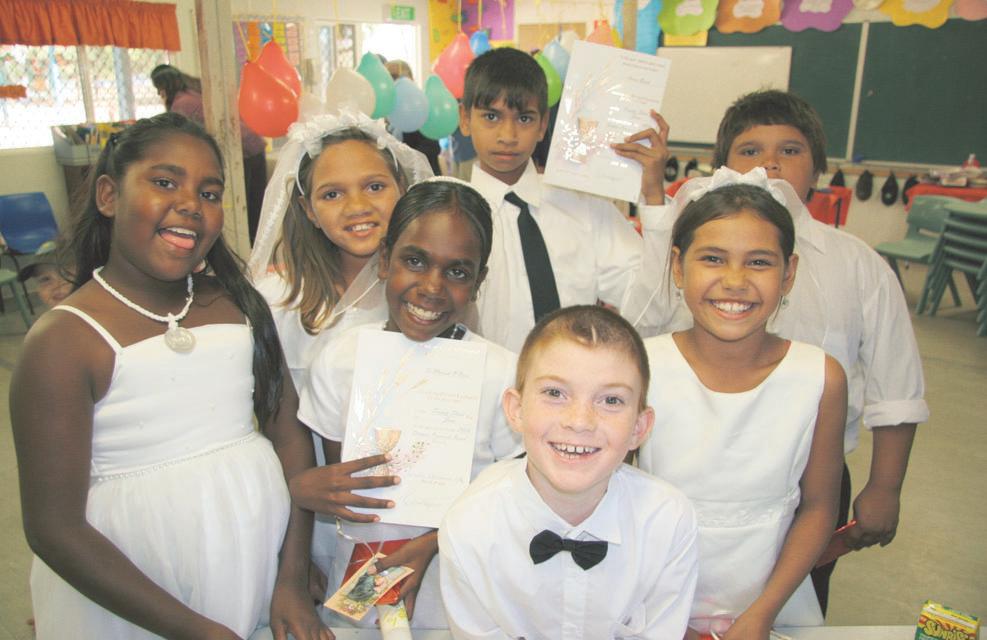
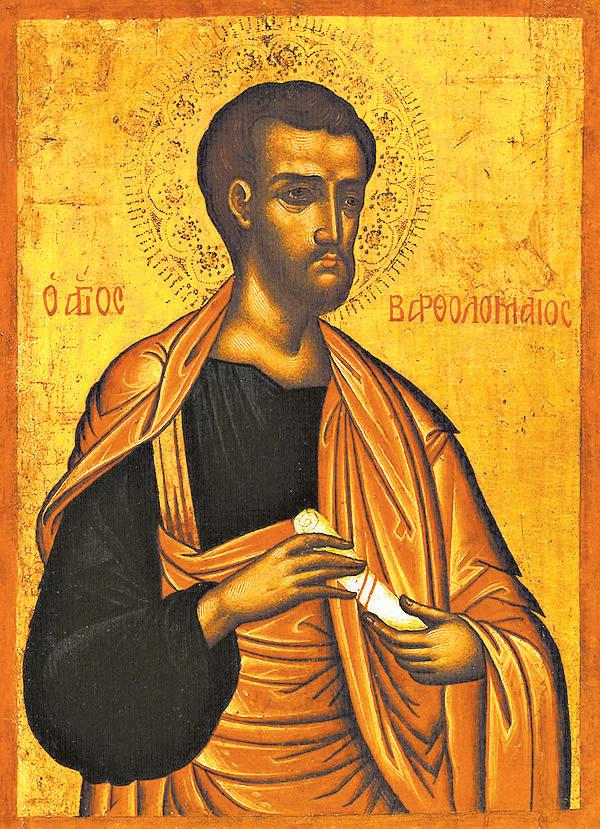
Returning to the scene of the vocation, the evangelist tells us that, when Jesus sees Nathanael approaching, he exclaims: “Here is a true Israelite. There is no duplicity in him” (John 1:47). It was praise that recalls the text of a psalm: “Happy those to whom the Lord imputes no guilt, in whose spirit is no deceit” (Psalm 32:2), but which arouses Nathanael’s curiosity, who, surprised, replies: “ How do you know me?” (John 1:48a). Jesus’ answer at first is not understood. He said to him: “Before Philip called you, I saw you under the fig tree” (John 1:48b).
Today it is difficult to realize with precision the meaning of these last words. According to what the specialists say, it is possible that, given that at times the fig tree is mentioned as the tree under which the doctors of the law sat to read and teach the Bible, he is alluding to that type of occupation carried out by Nathanael at the moment of his calling.
Anyway, what counts most in John’s narration is the confession of faith that Nathanael professes at the end in a limpid way: “Rabbi, you are the Son of God; you are the King of Israel!” (John 1:49). Although it does not reach the intensity of Thomas’ confession with which John’s Gospel ends: “My Lord and my God!” (John 20:28), Nathanael’s confession has the function to open the terrain to the fourth Gospel.
In the latter a first and important step is taken on the path of adherence to Christ. Nathanael’s words present a double and complementary aspect of Jesus’ identity: He is recognised both by his special relationship with God the Father, of whom he is the only-begotten Son, as well as by his relationship with the
people of Israel, of whom he is called King, an attribution proper of the awaited Messiah. We must never lose sight of either of these two elements, since if we only proclaim the heavenly dimension of Jesus we run the risk of making him an ethereal and evanescent being, while if we only recognise his concrete role in history, we run the risk of neglecting his divine dimension, which is his proper description.
We do not have precise information on the subsequent apostolic activity of BartholomewNathanael. According to information referred to by the historian Eusebius in the fourth century, a certain Panteno found in India signs of Bartholomew’s presence (cf. “Ecclesiastical History,” V, 10,3).
In the later tradition, beginning in the Middle Ages, the account of his death by flaying was imposed, which later became extremely popular.
Suffice it to think of the very famous scene of the Last Judgment in the Sistine Chapel, in which Michelangelo presented St Bartholomew holding his own skin in his left hand, in which the artist left his self-portrait. His relics are venerated here, in Rome, in the church dedicated to him on the Island of the Tiber, where they were brought by the German Emperor Otto III in the year 983.
Concluding, we can say that the figure of St Bartholomew, despite the lack of information, tells us that adherence to Jesus can be lived and witnessed even without doing sensational works. Jesus is the extraordinary one, to whom each one of us is called to consecrate his life and death.
